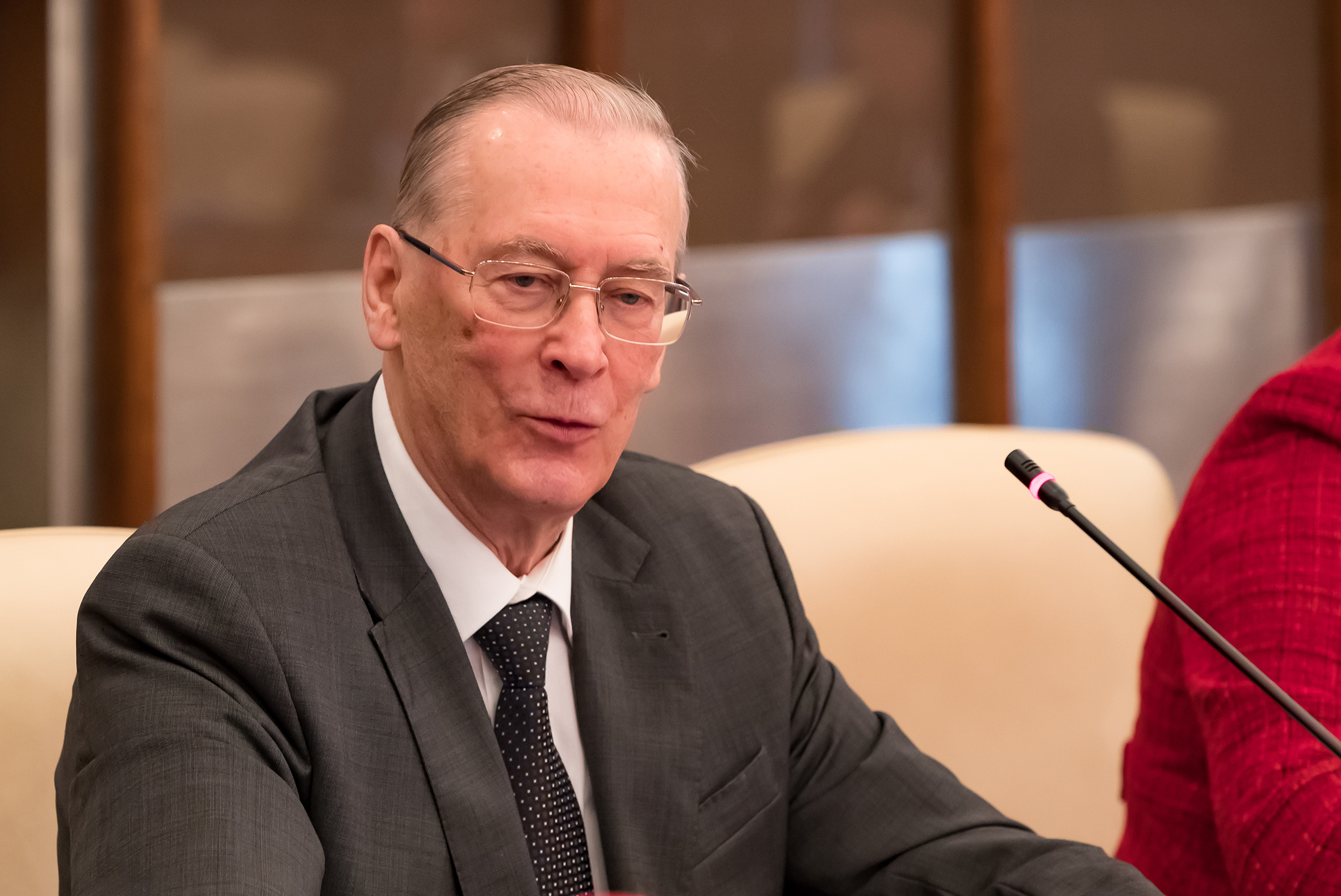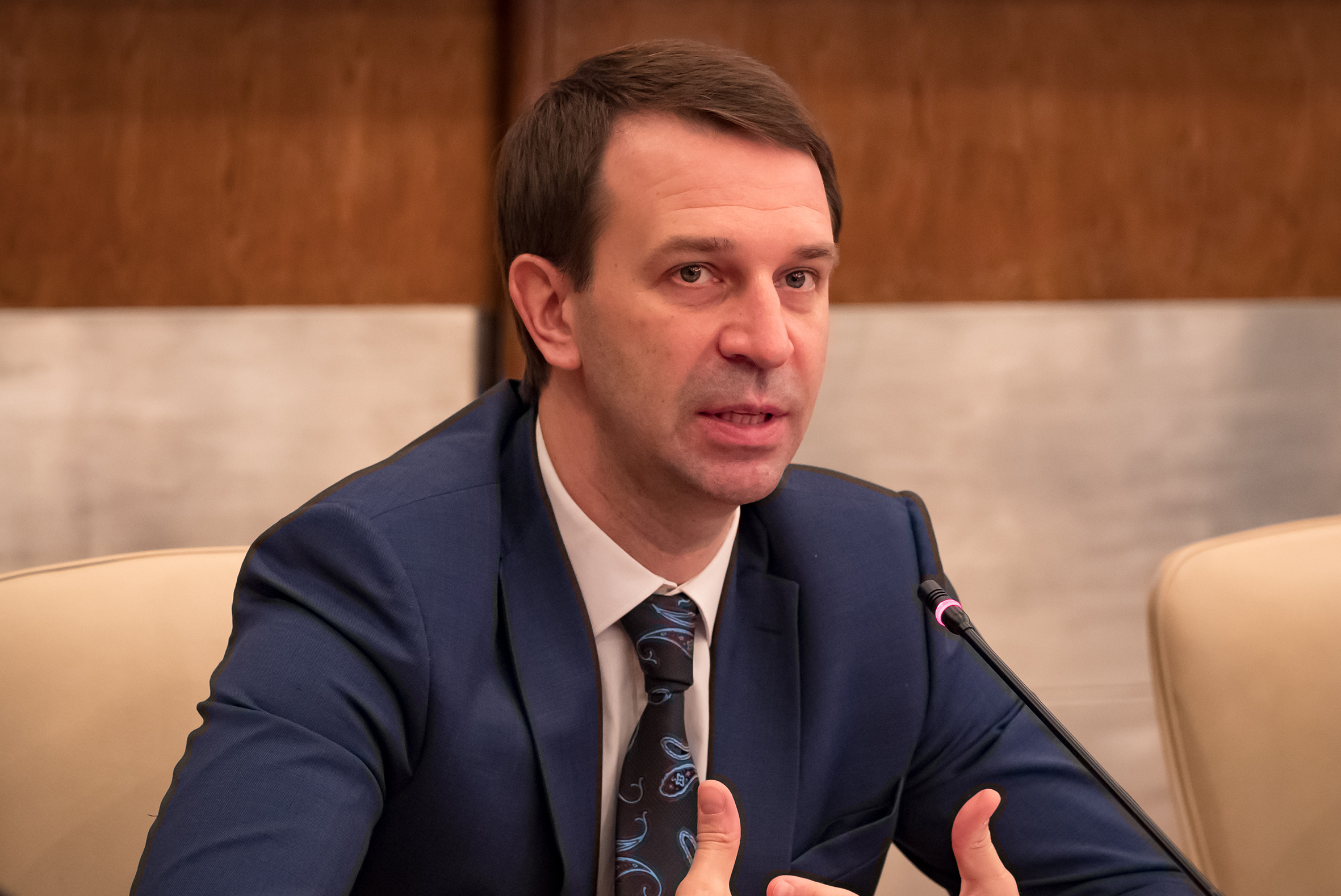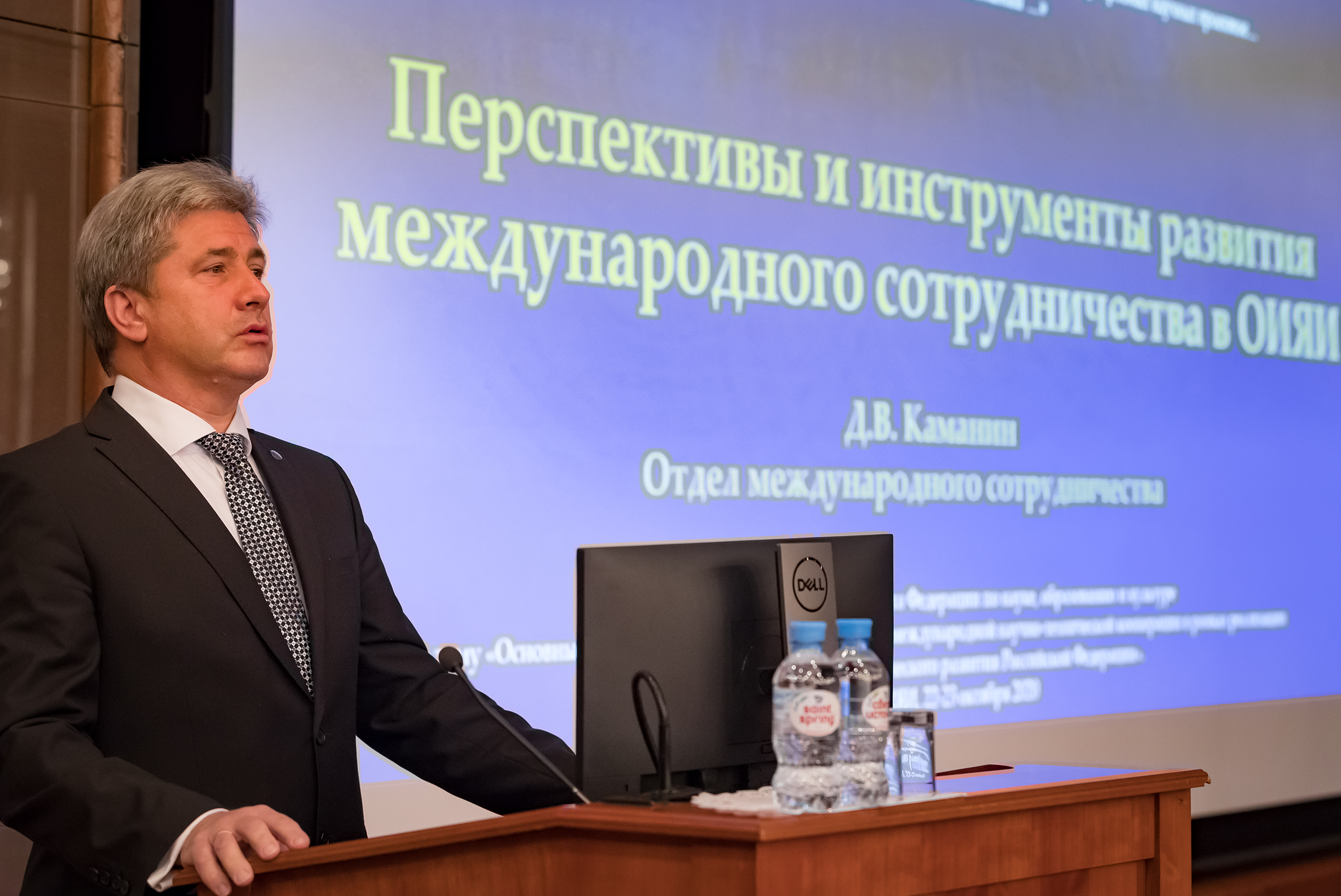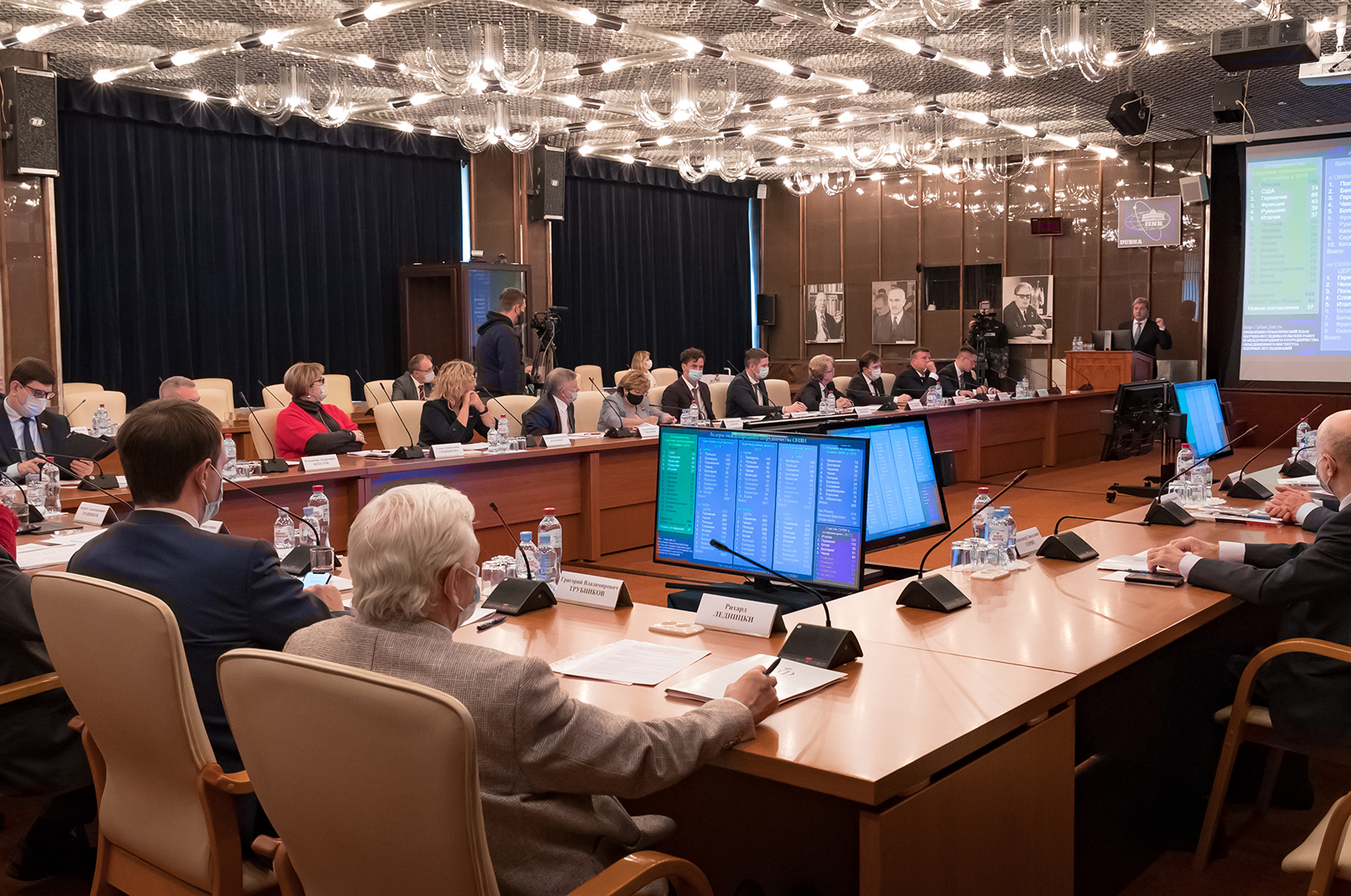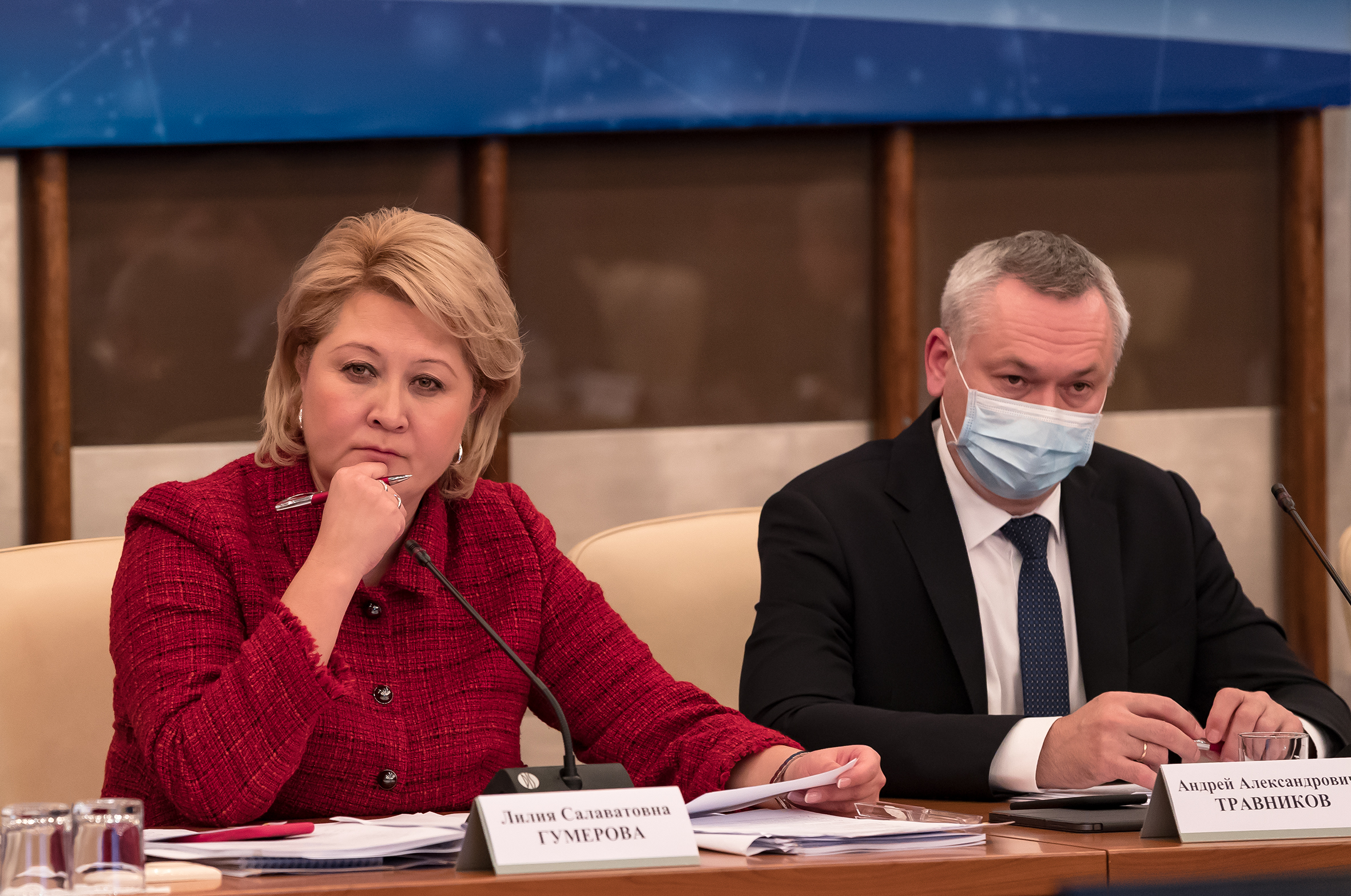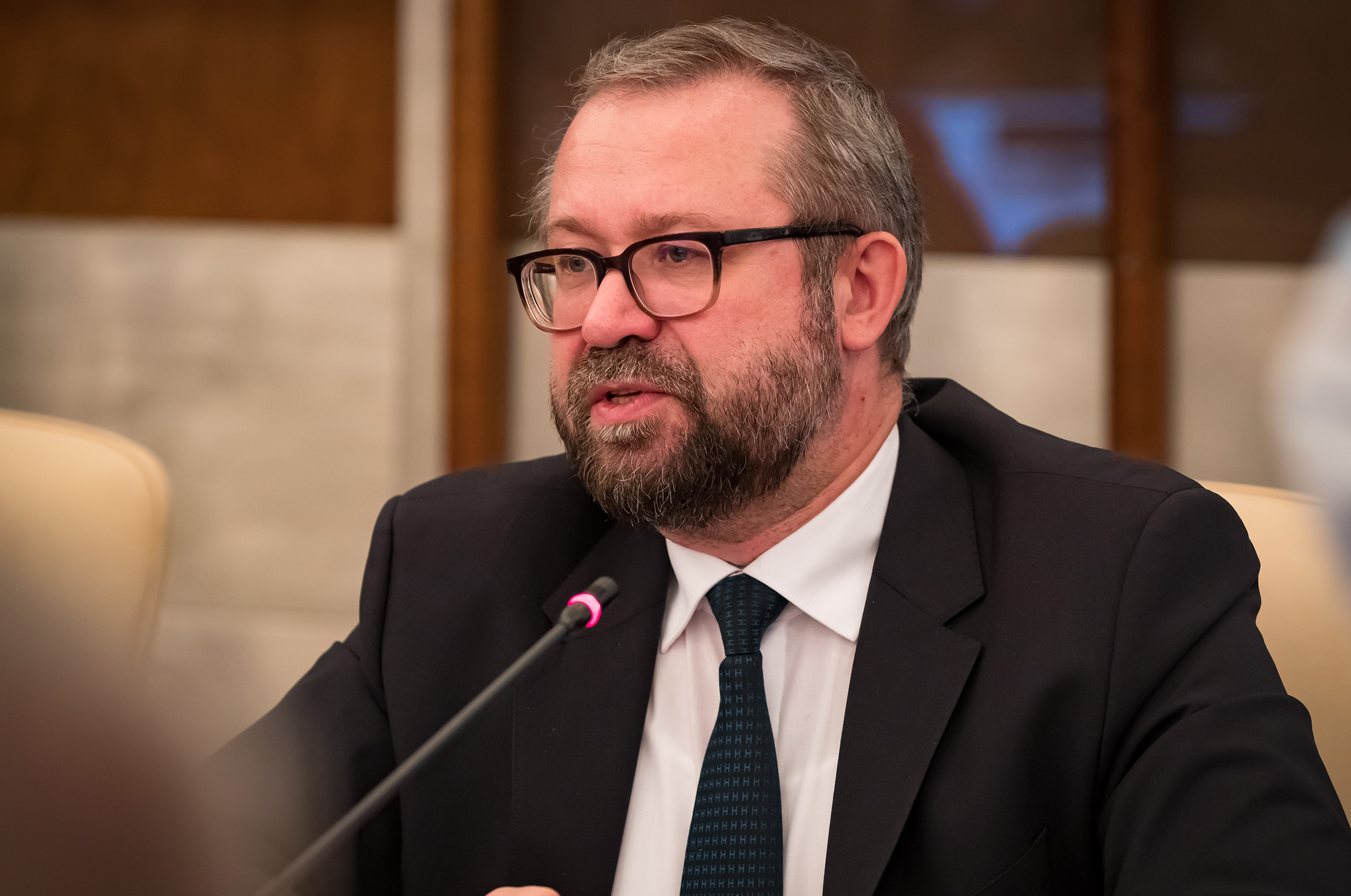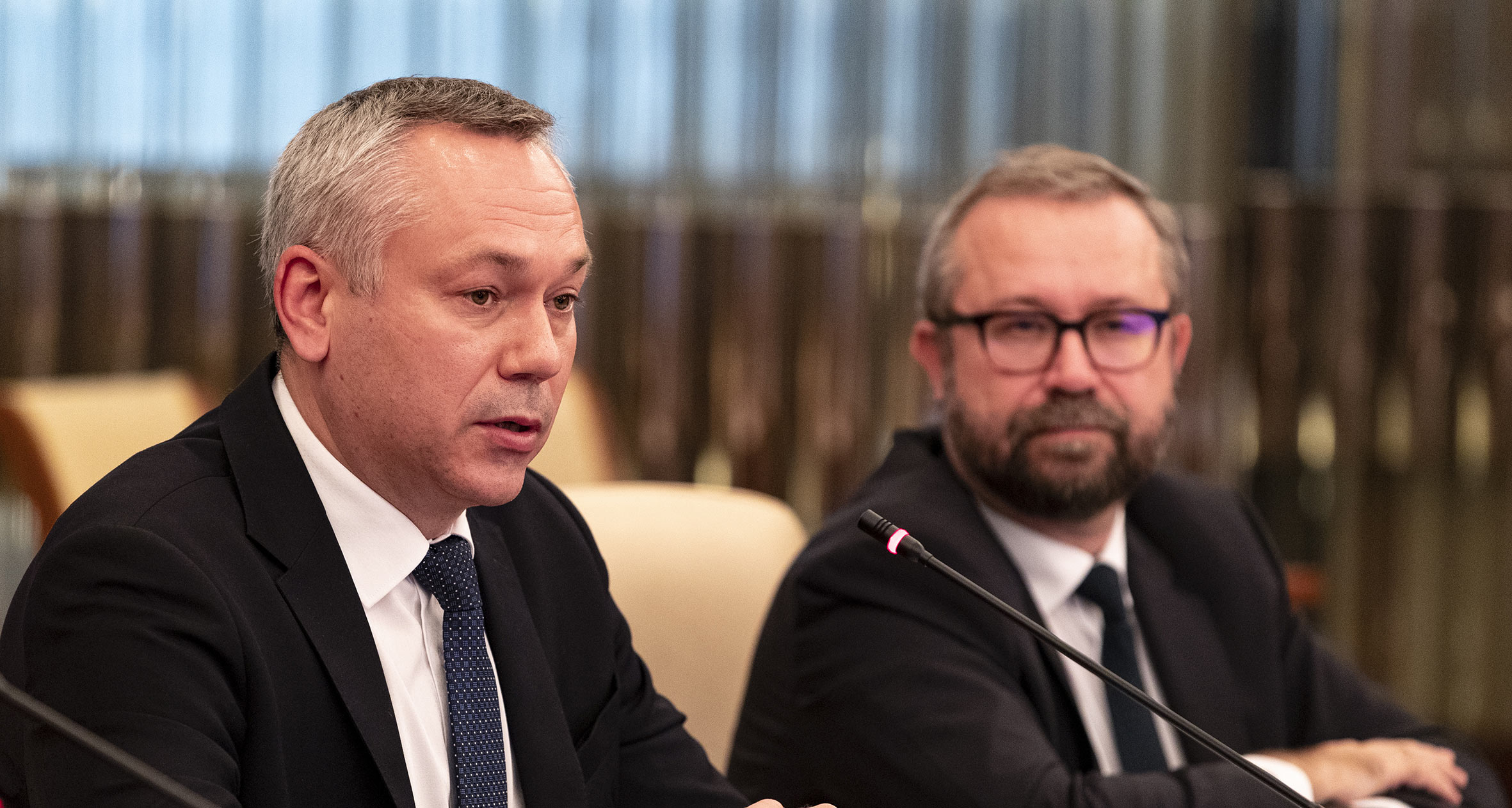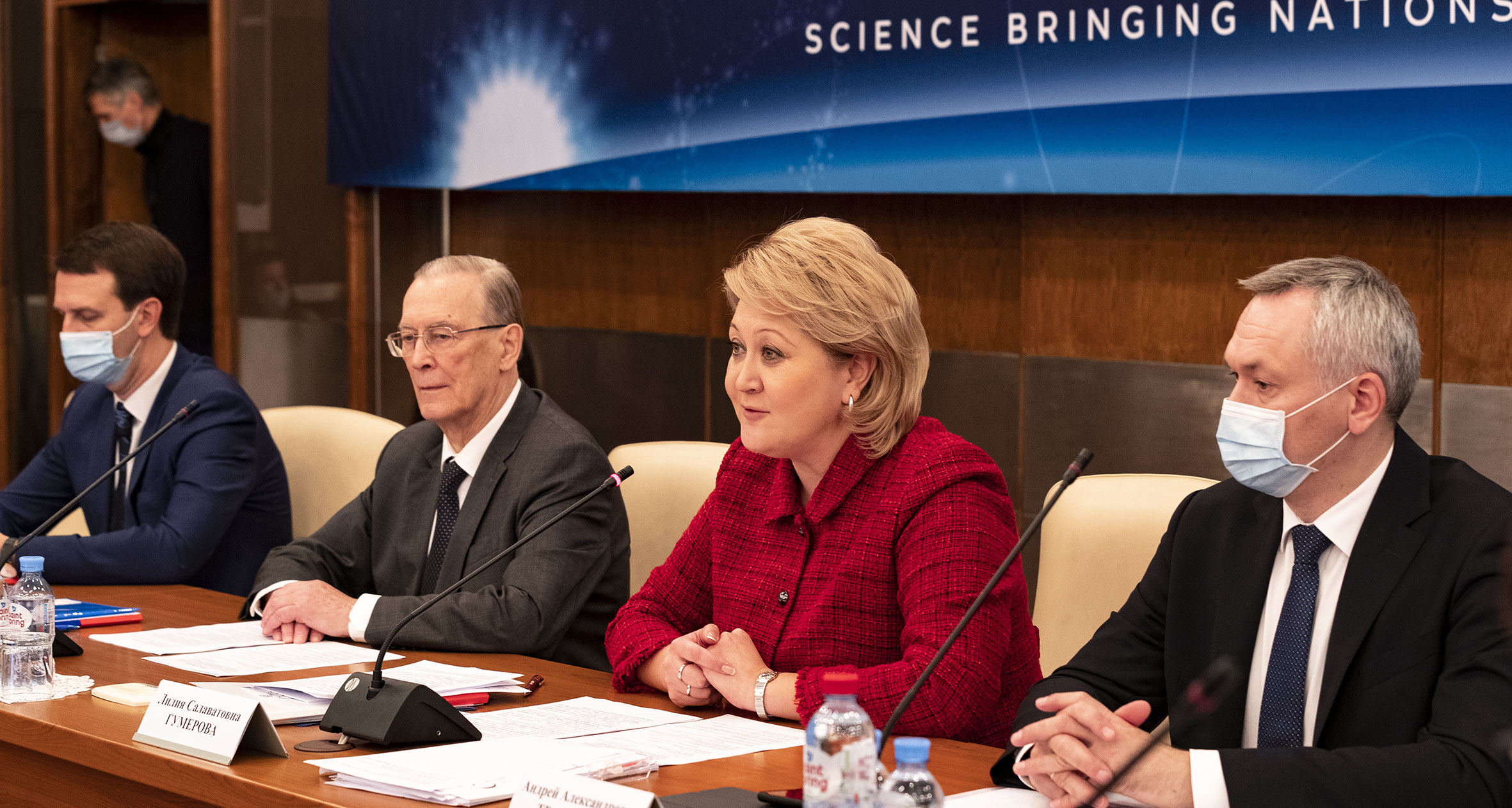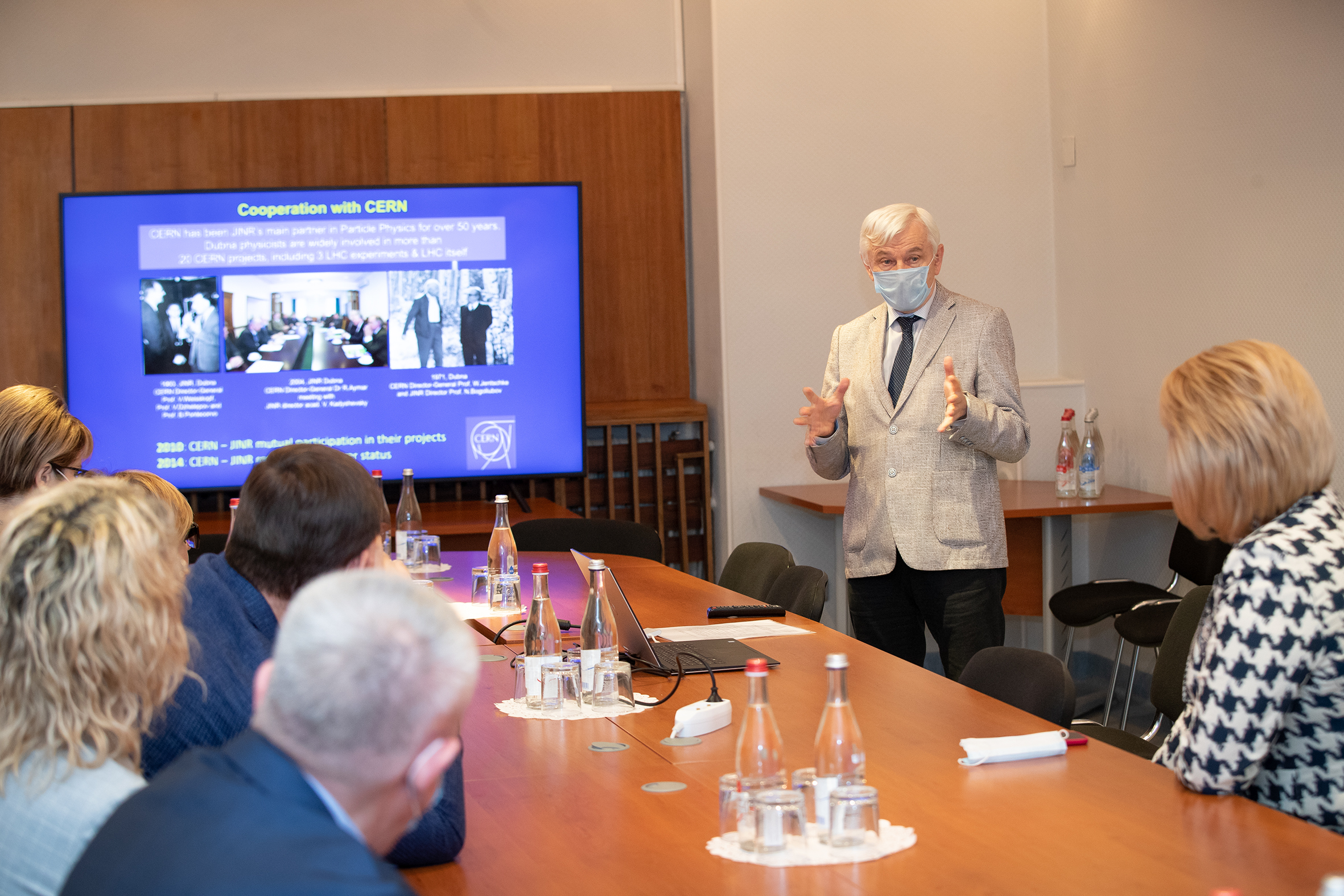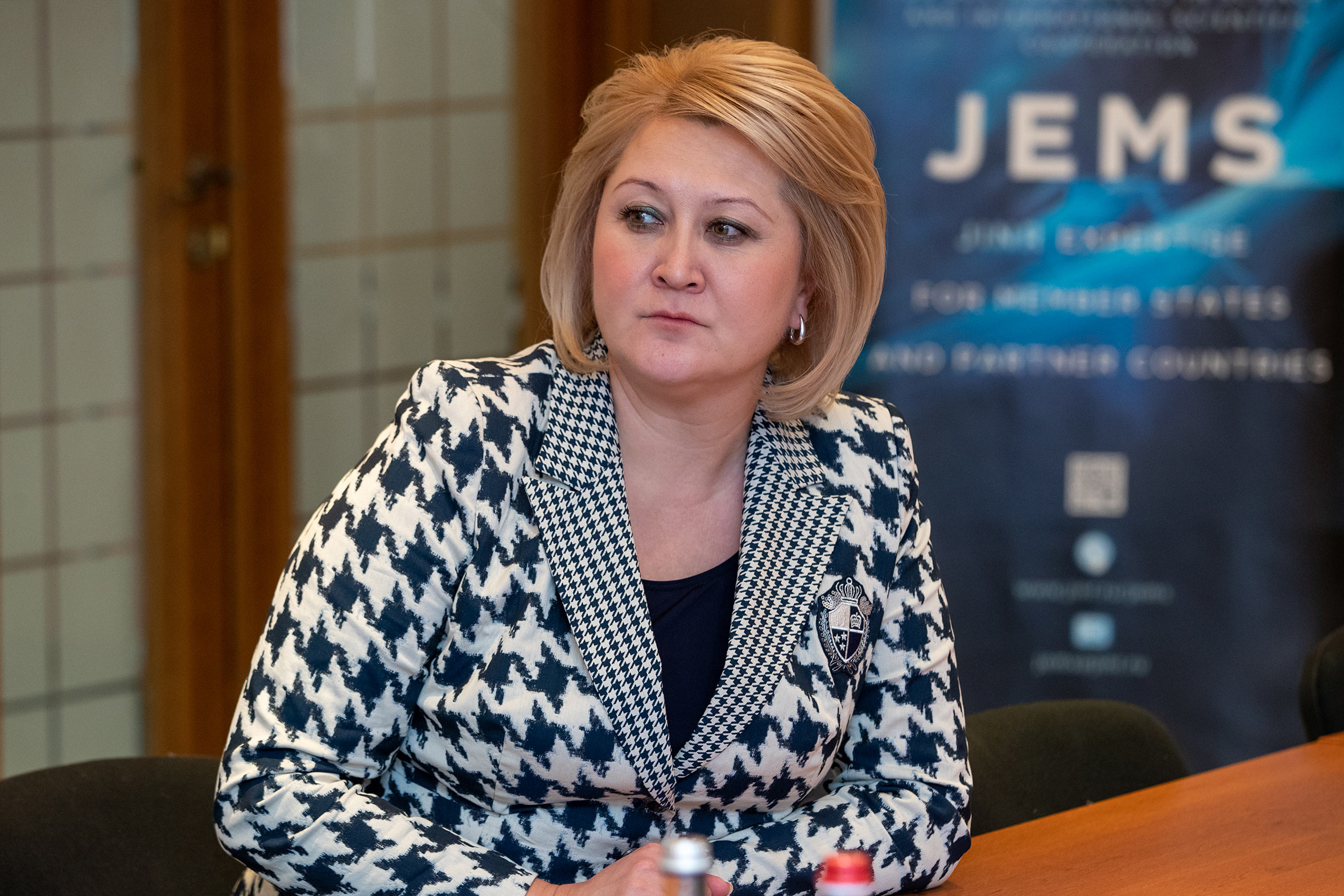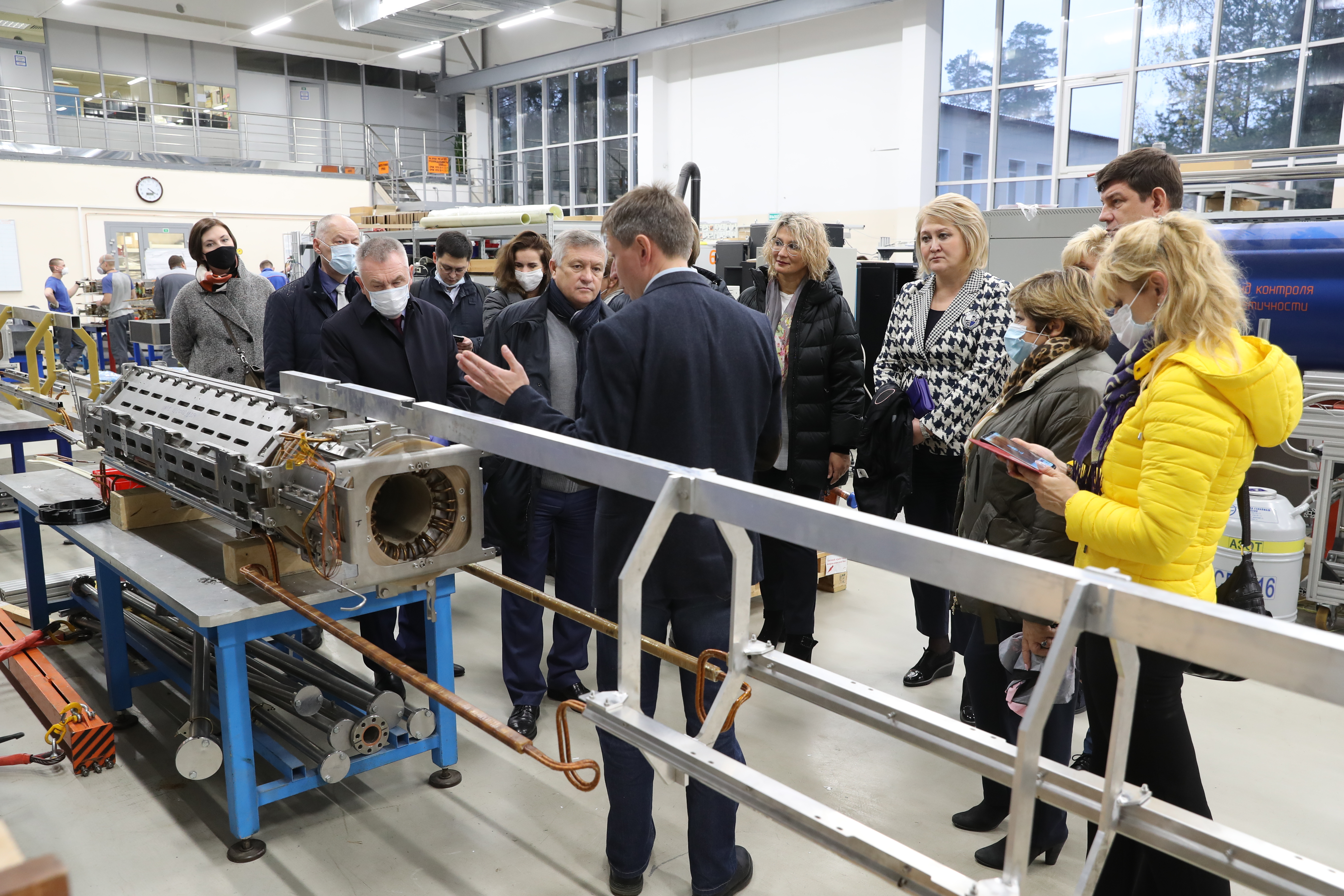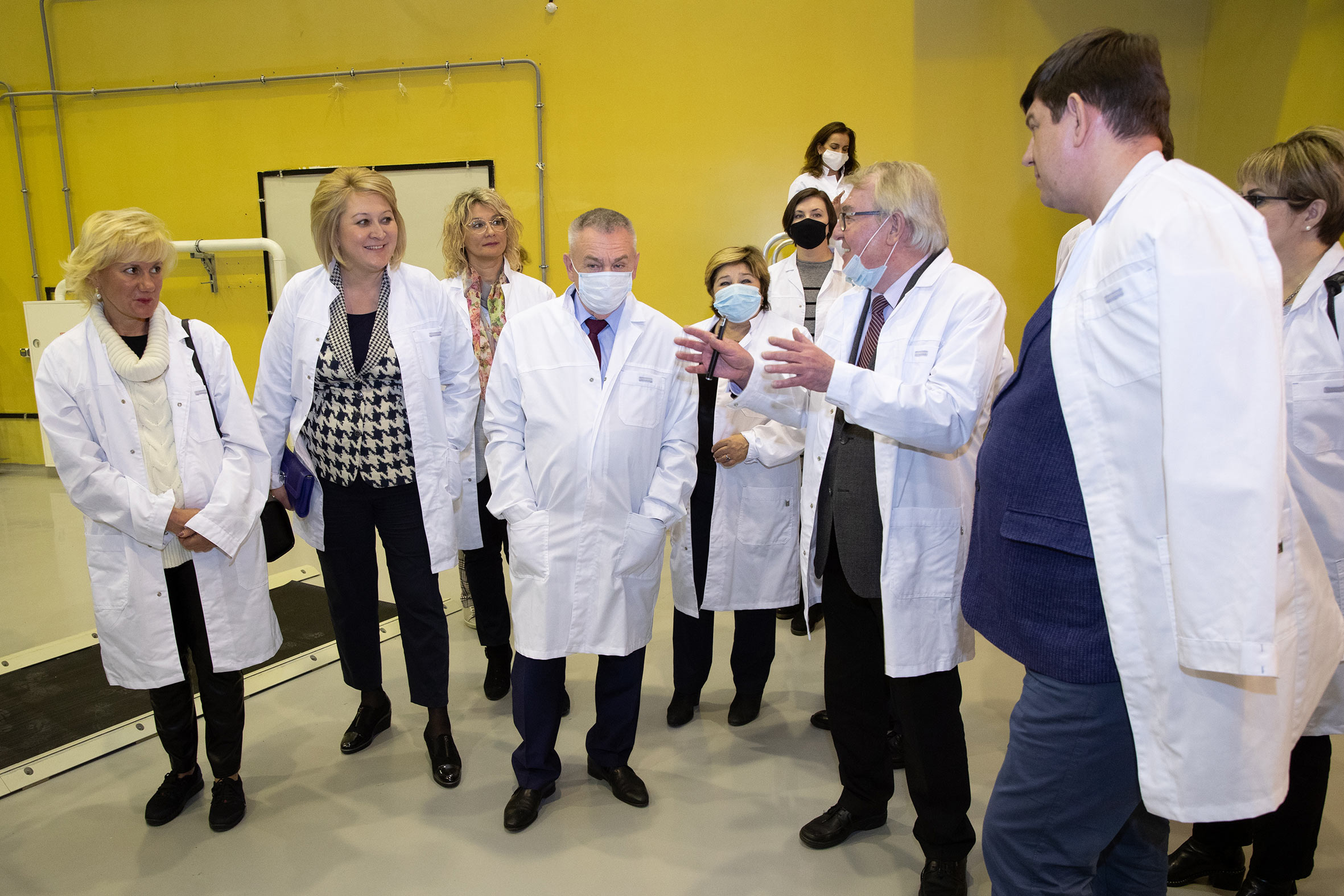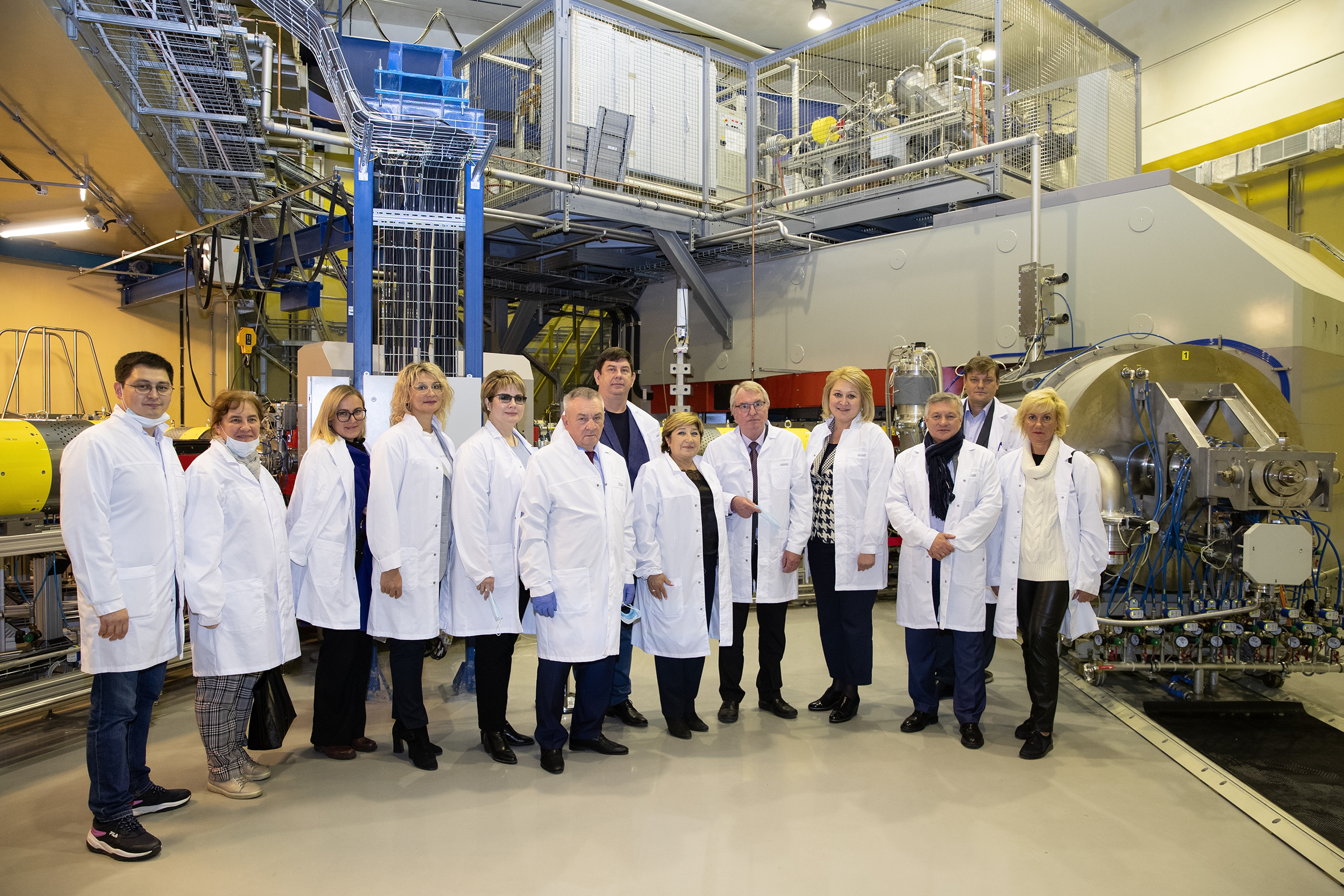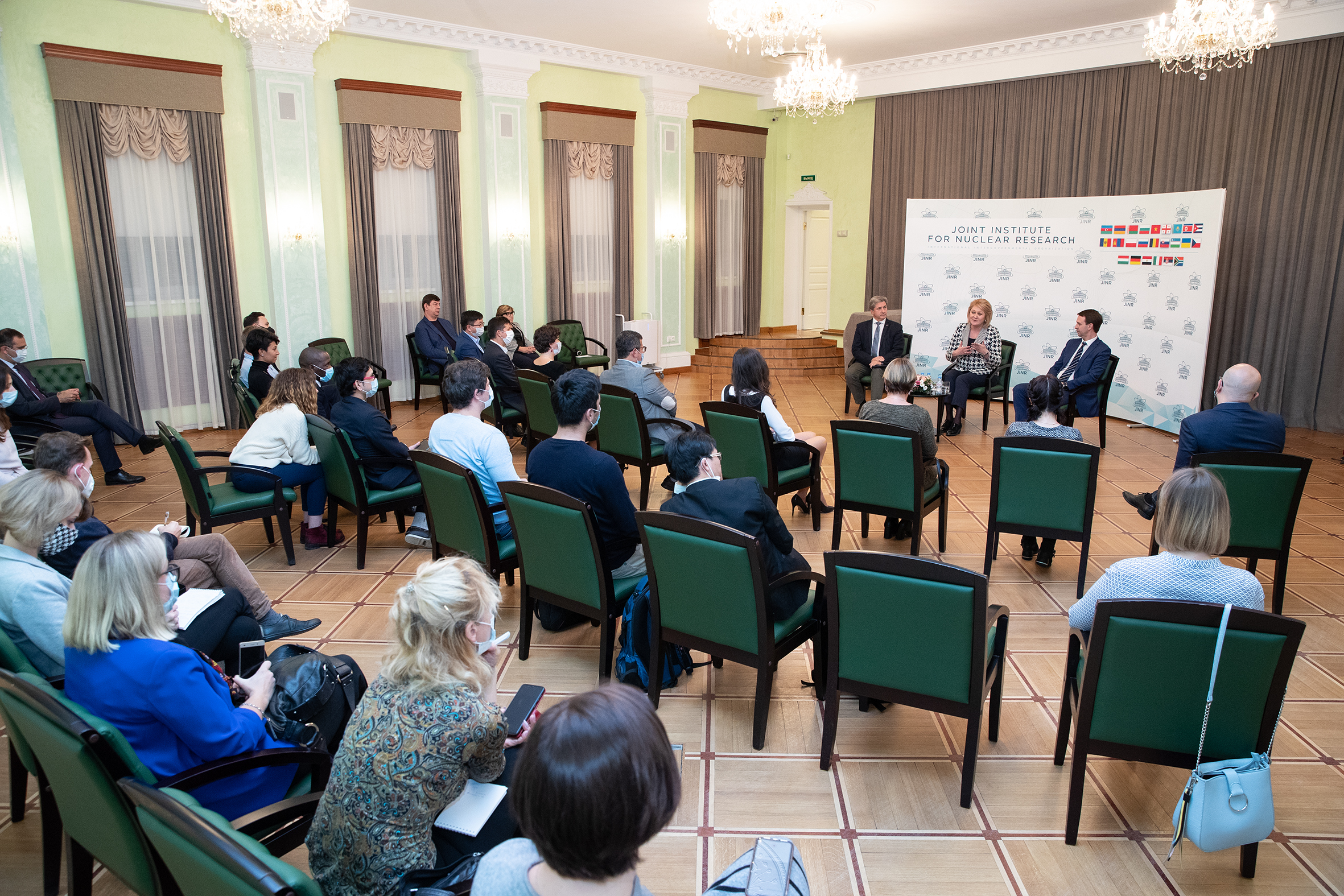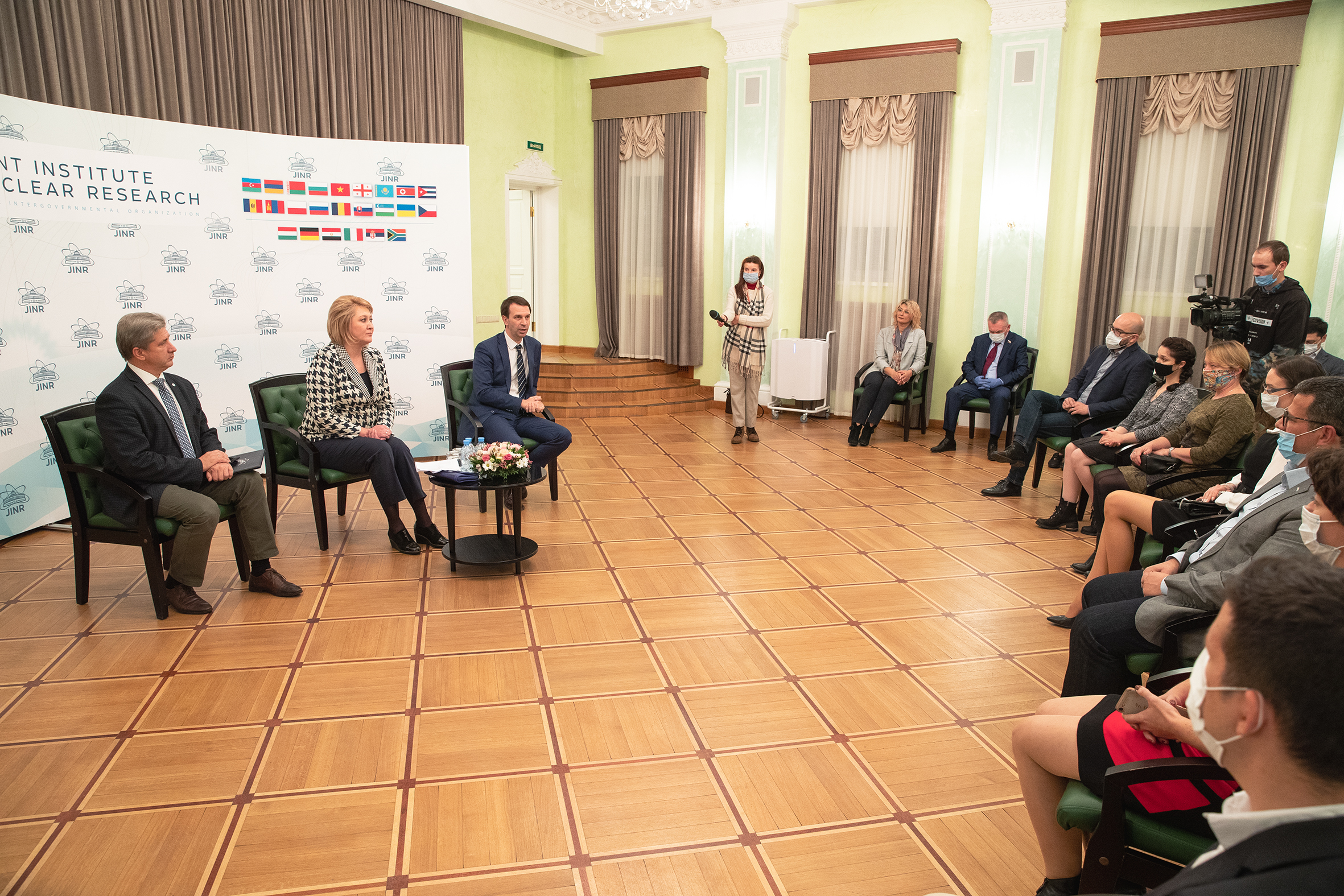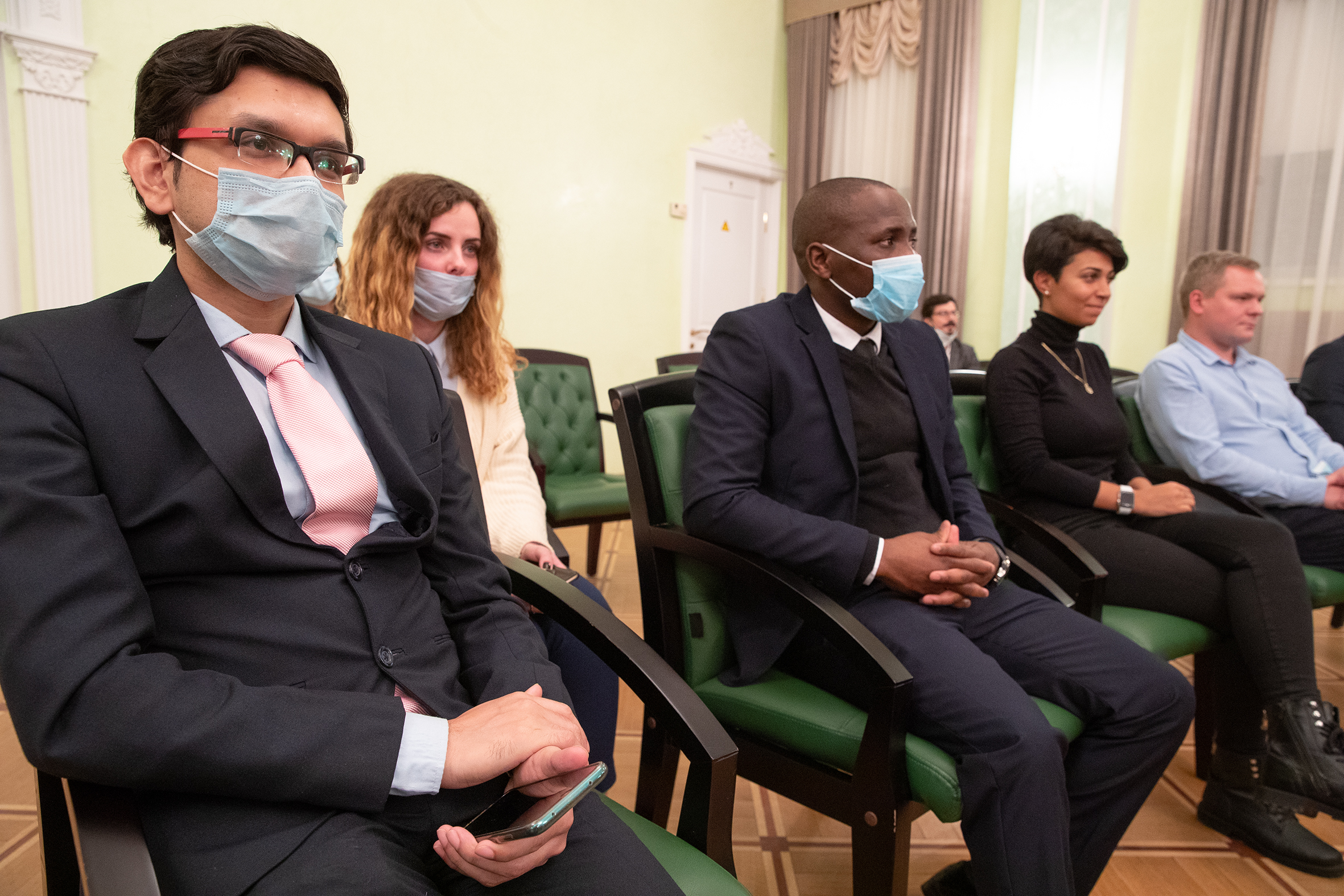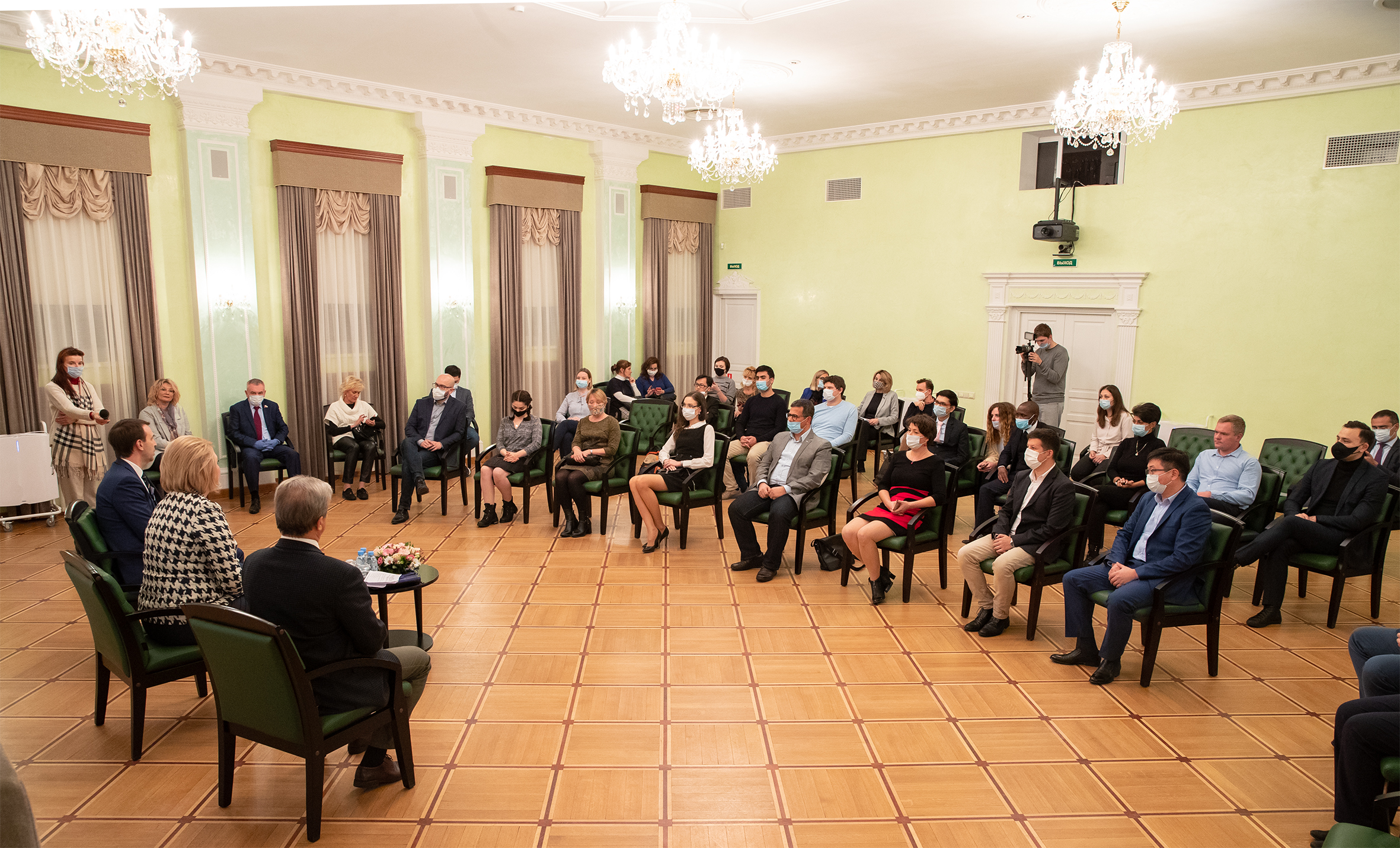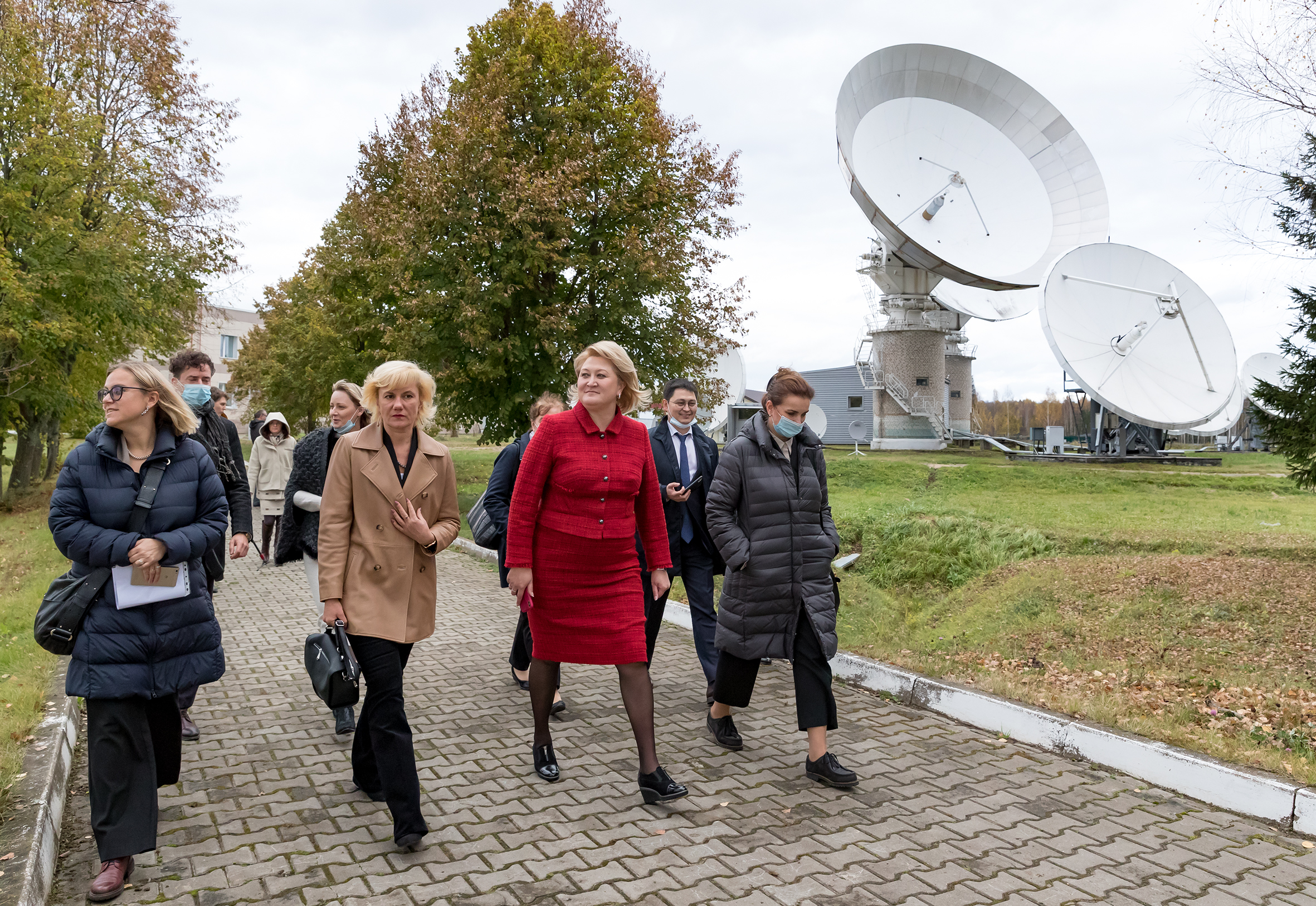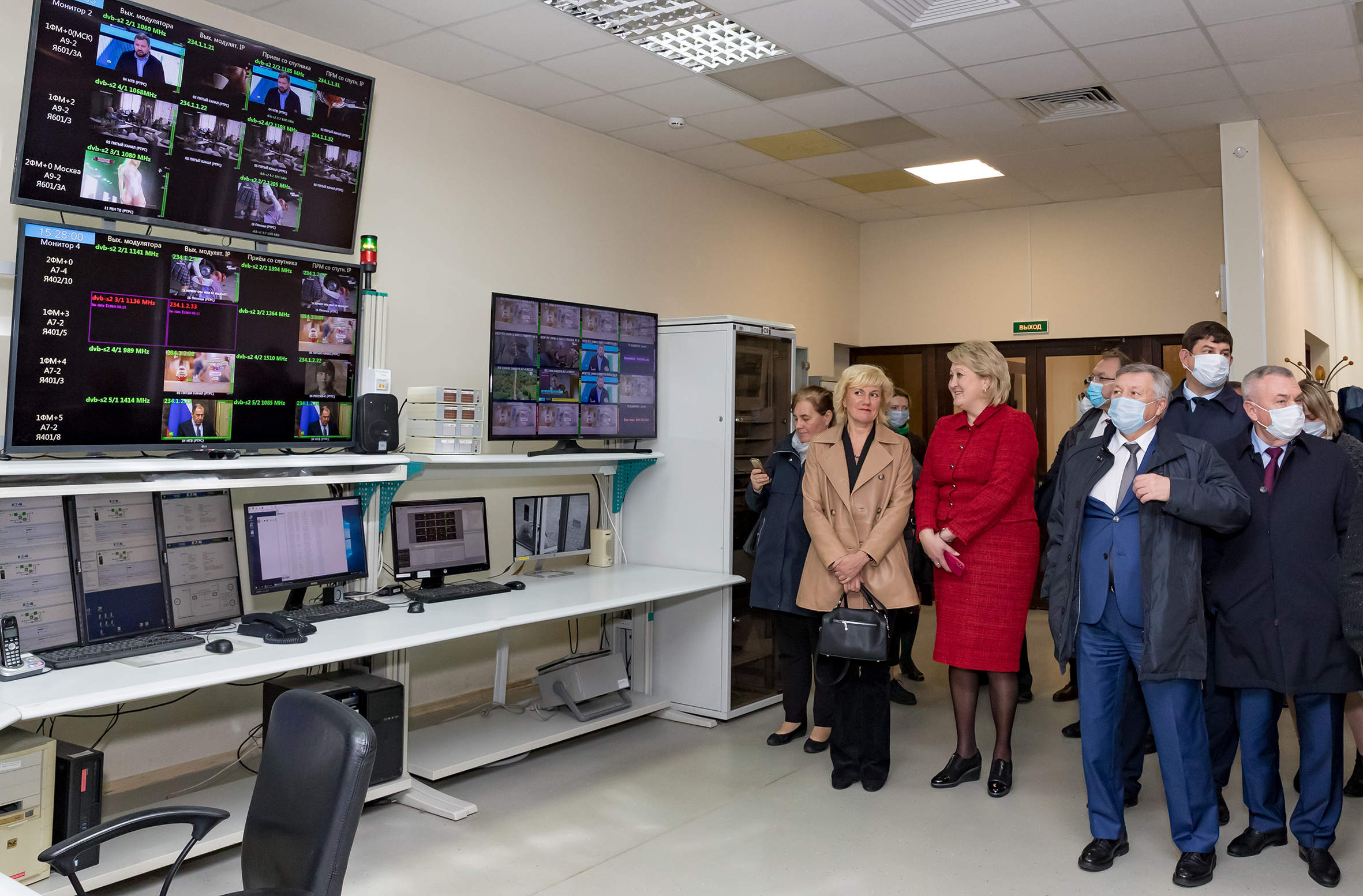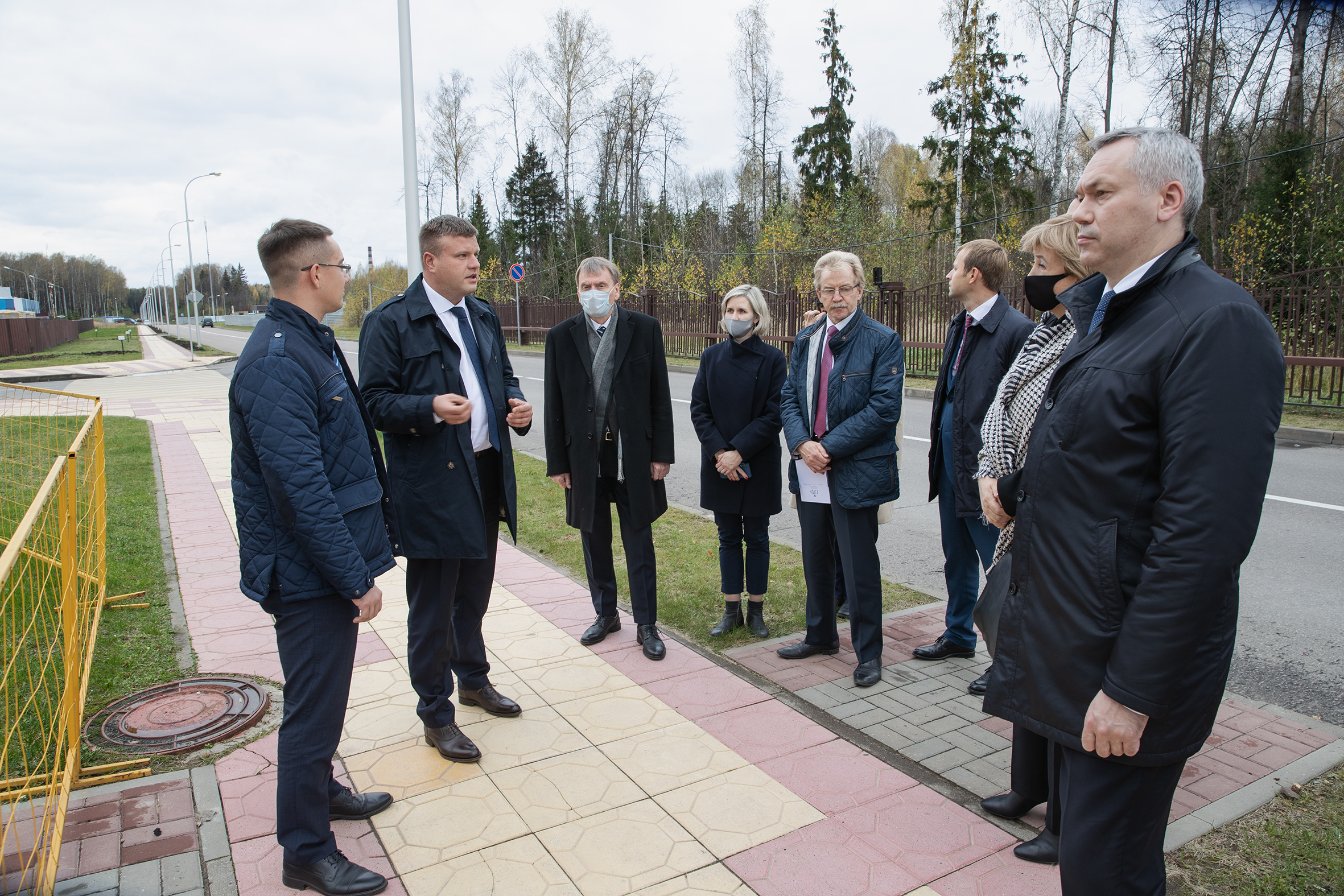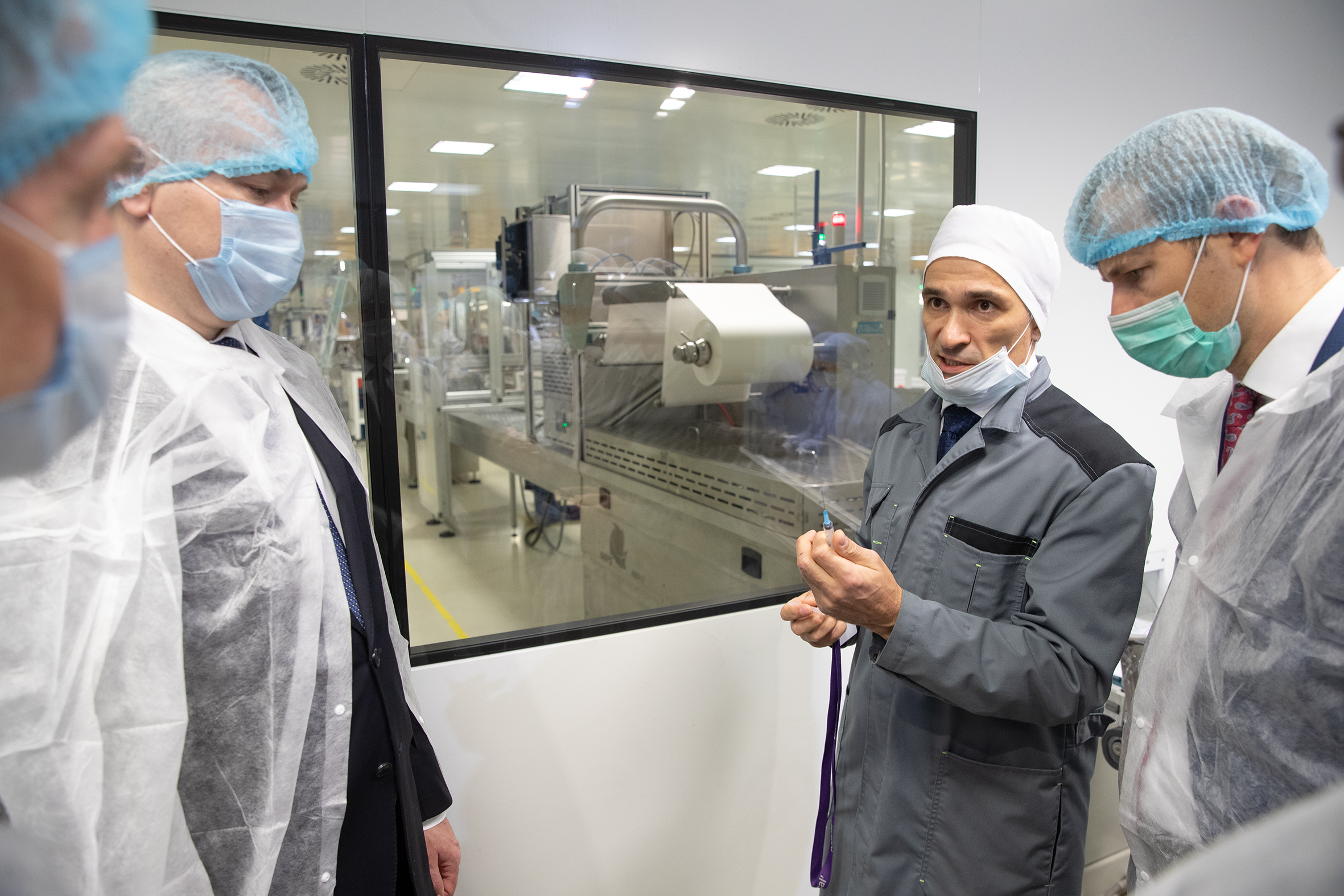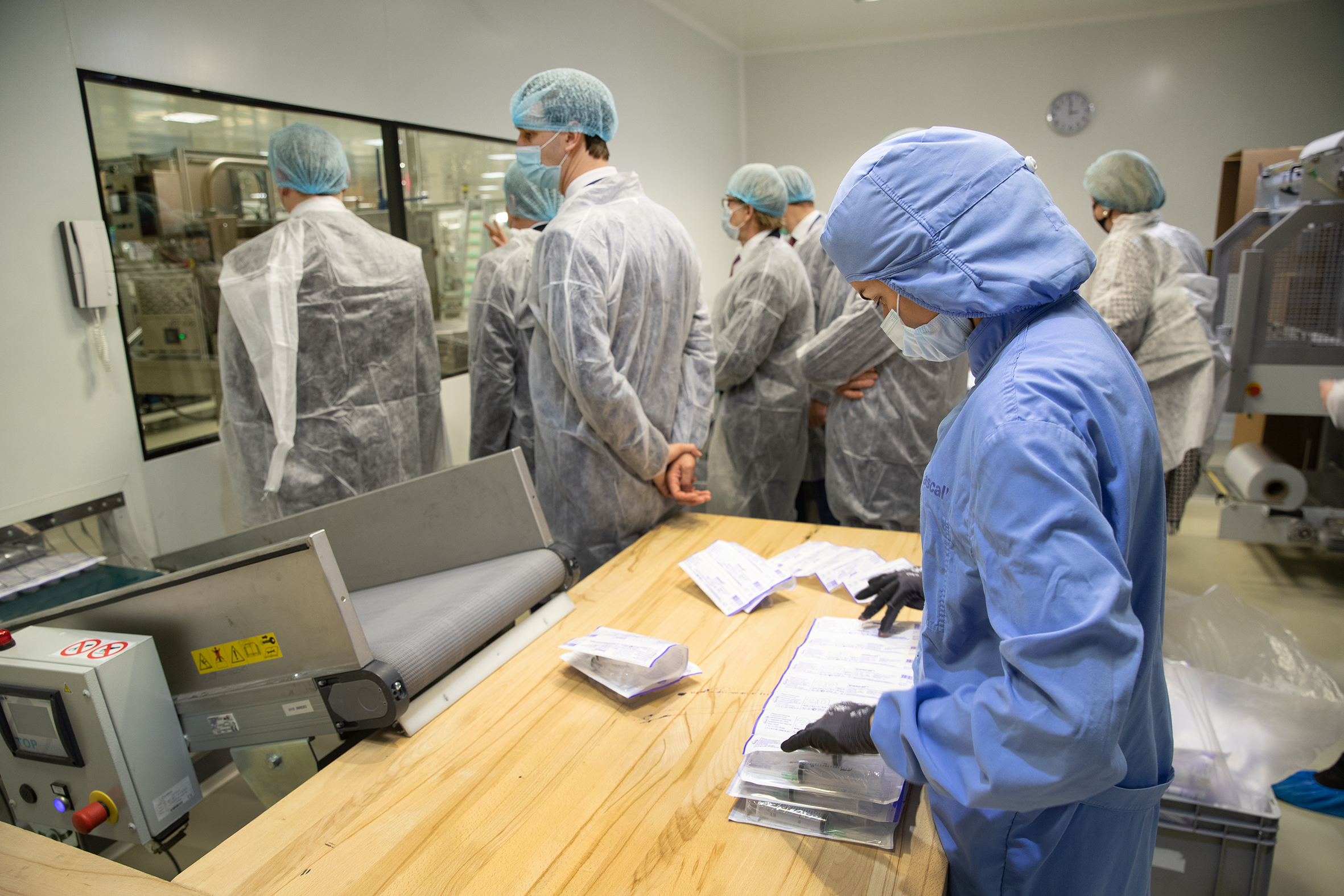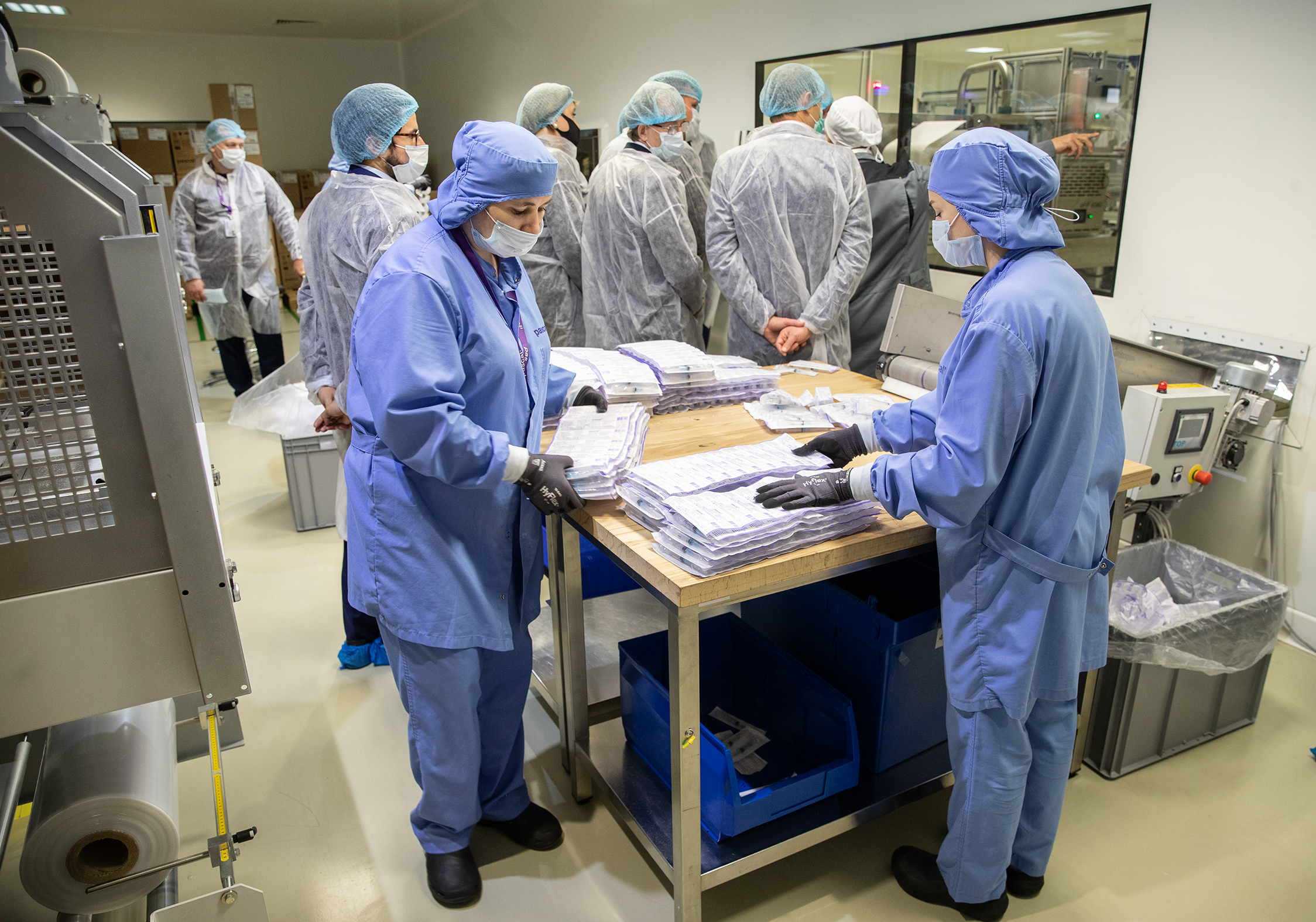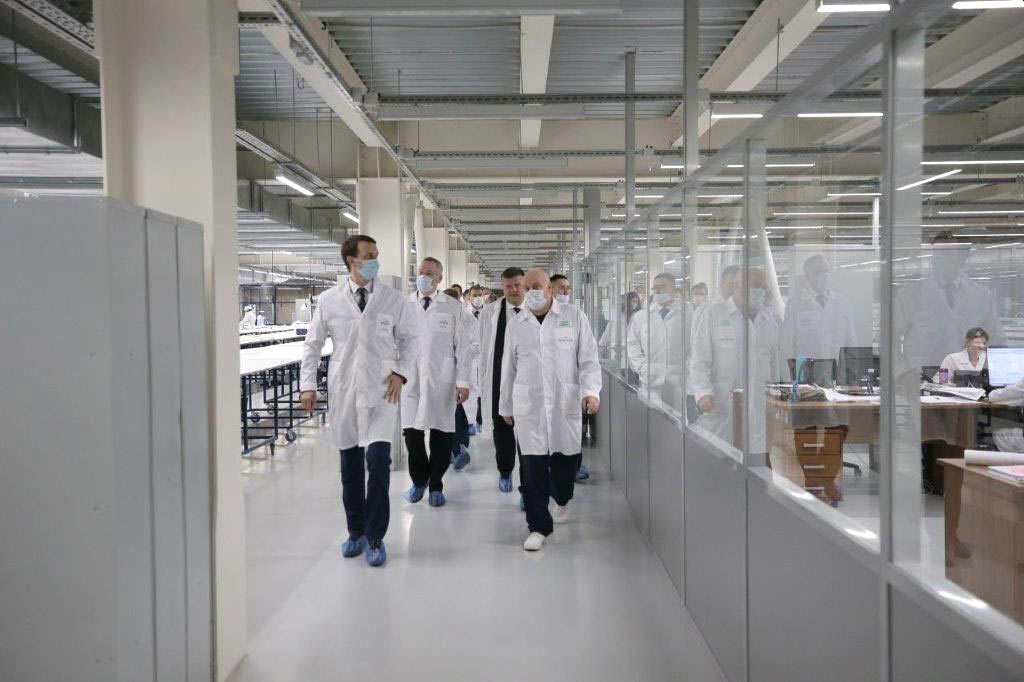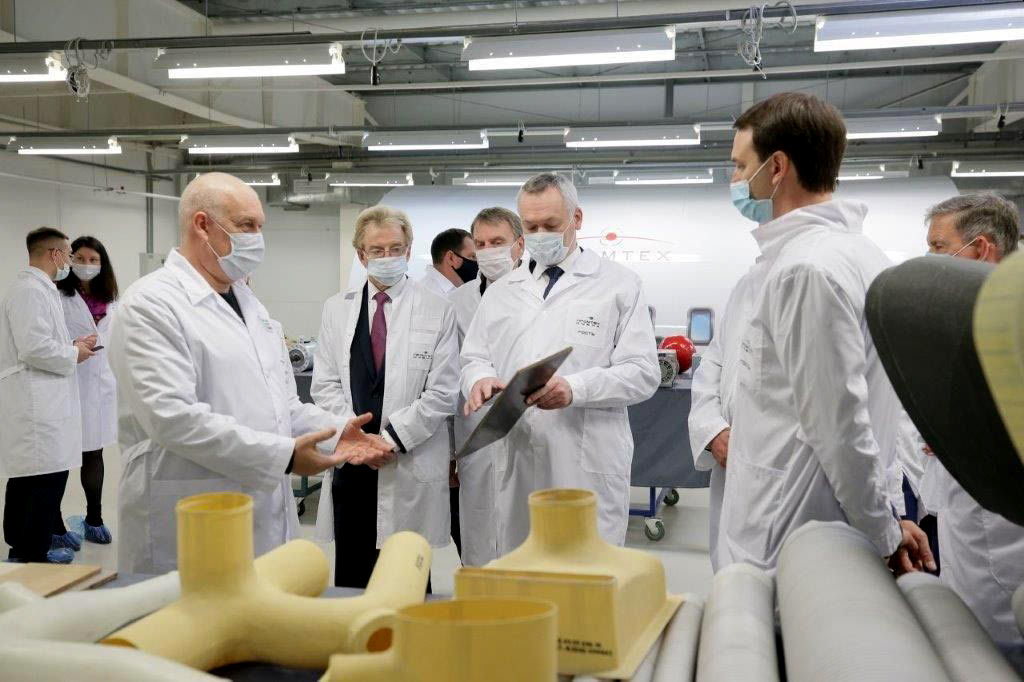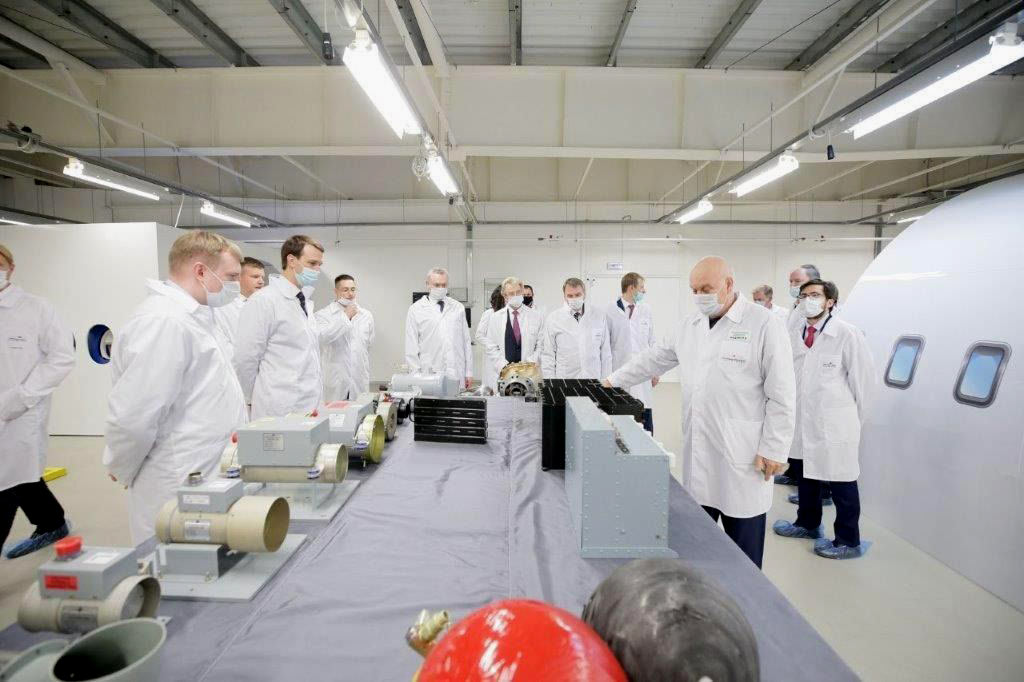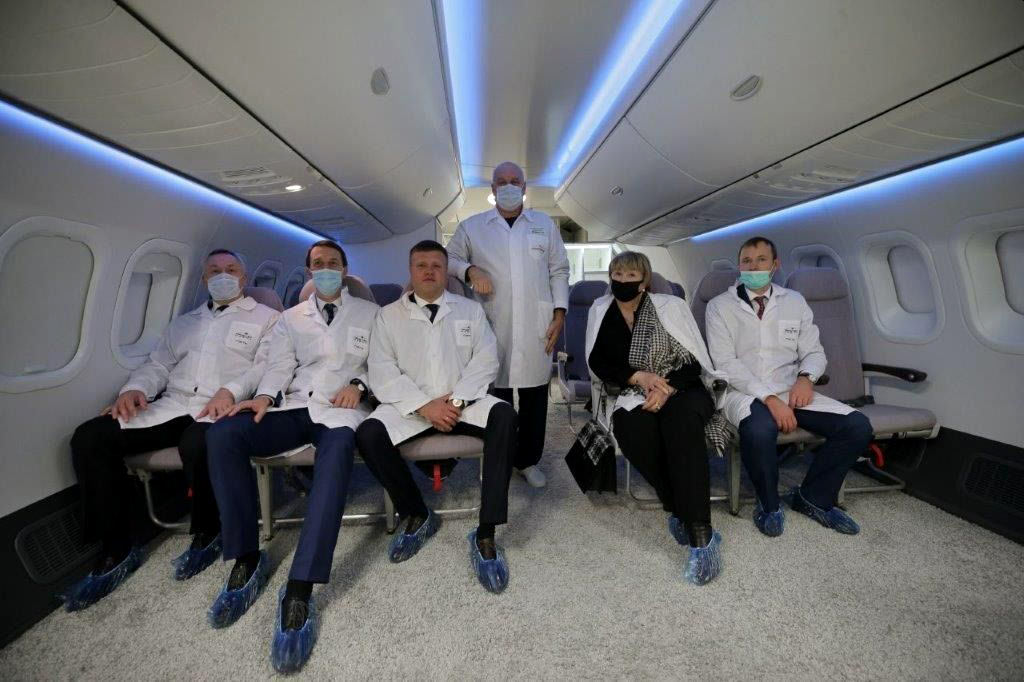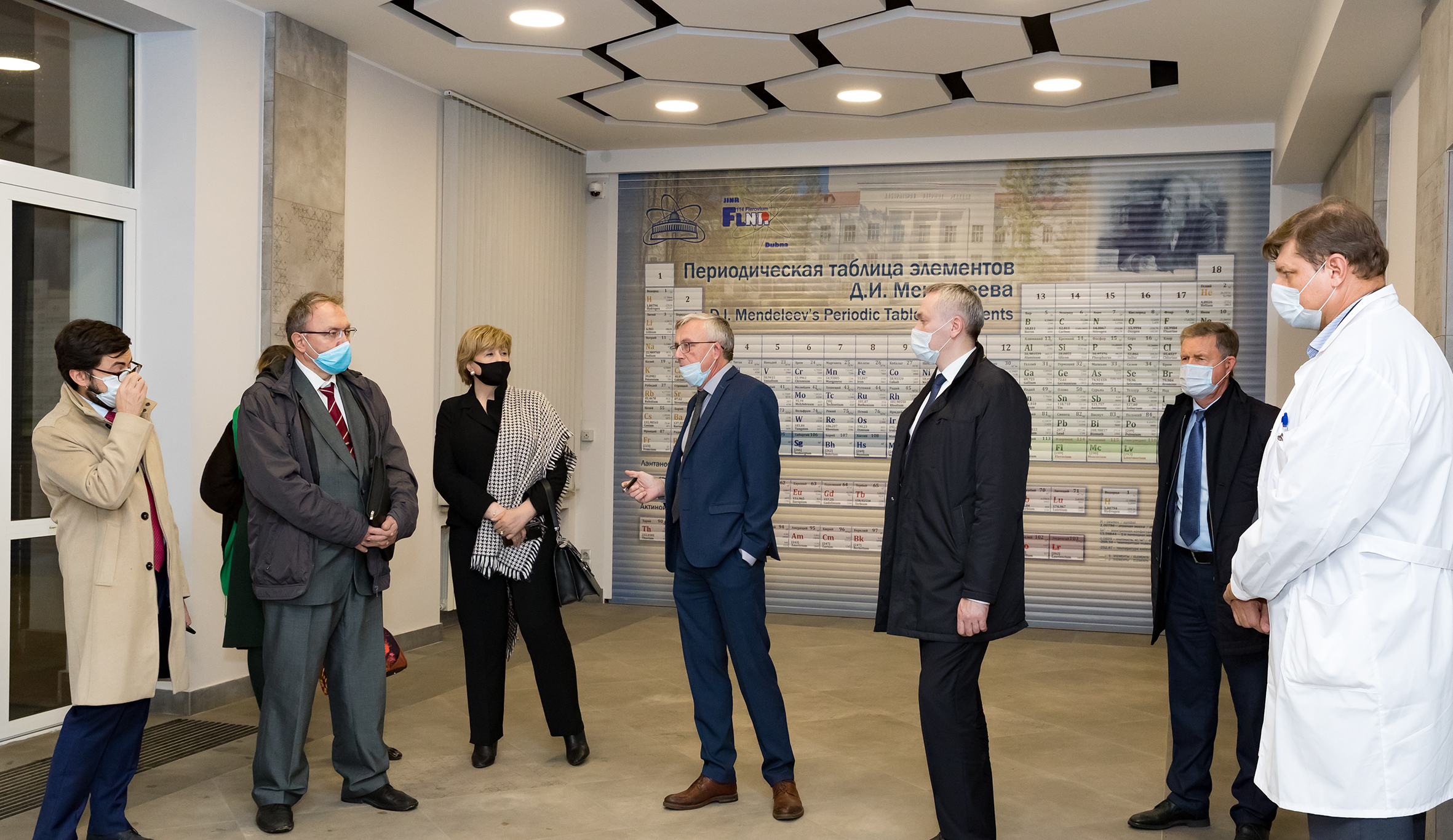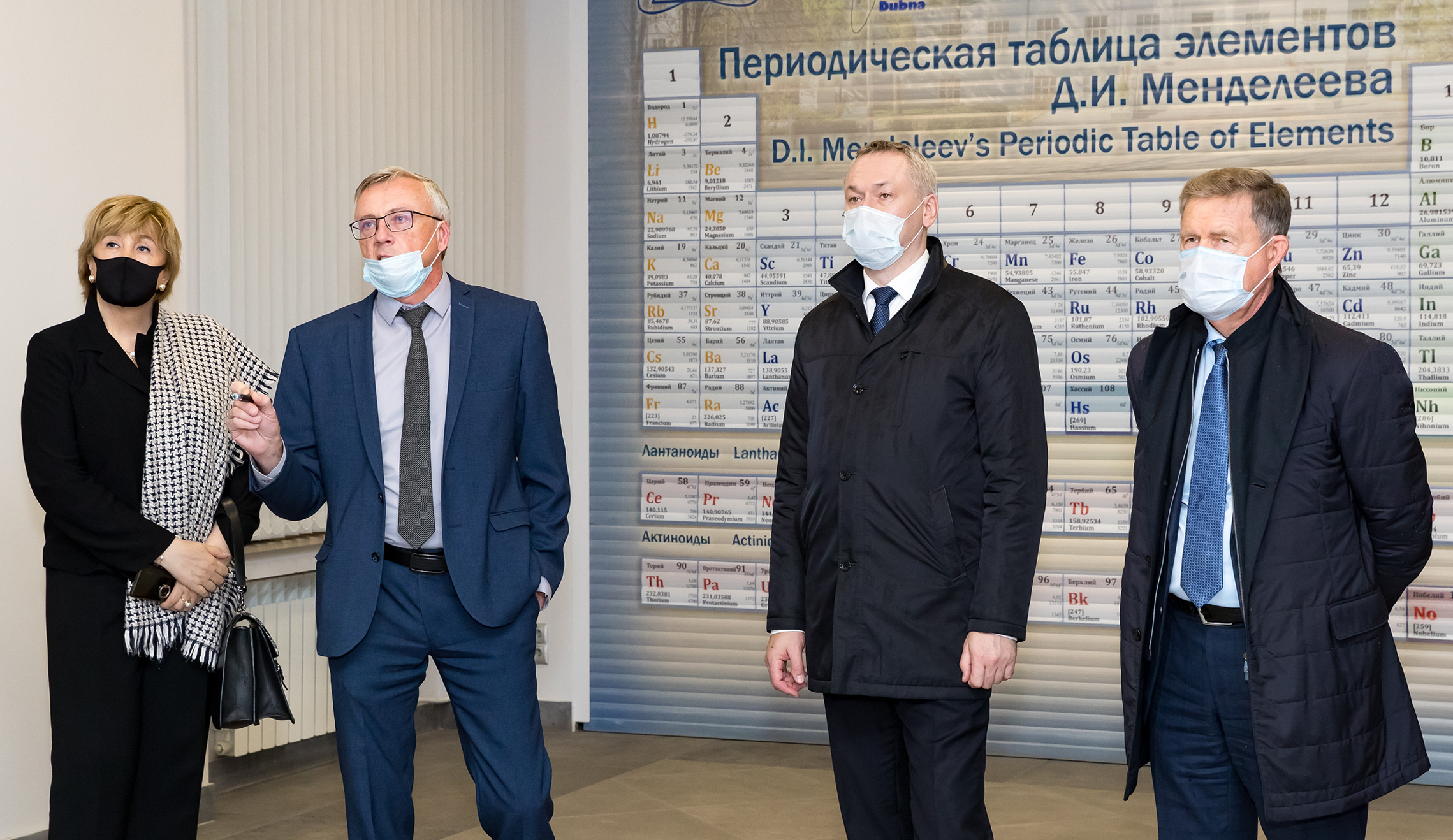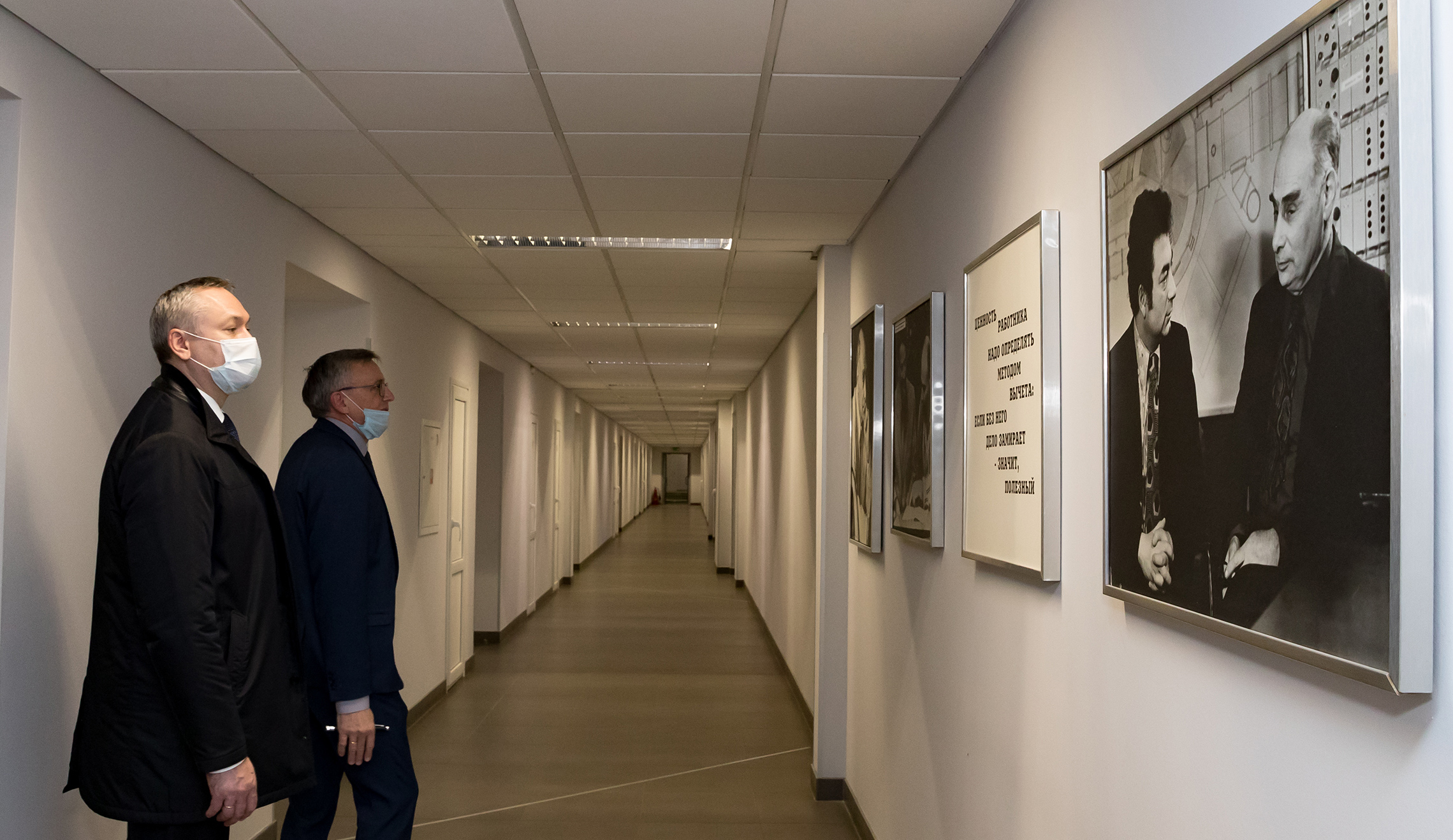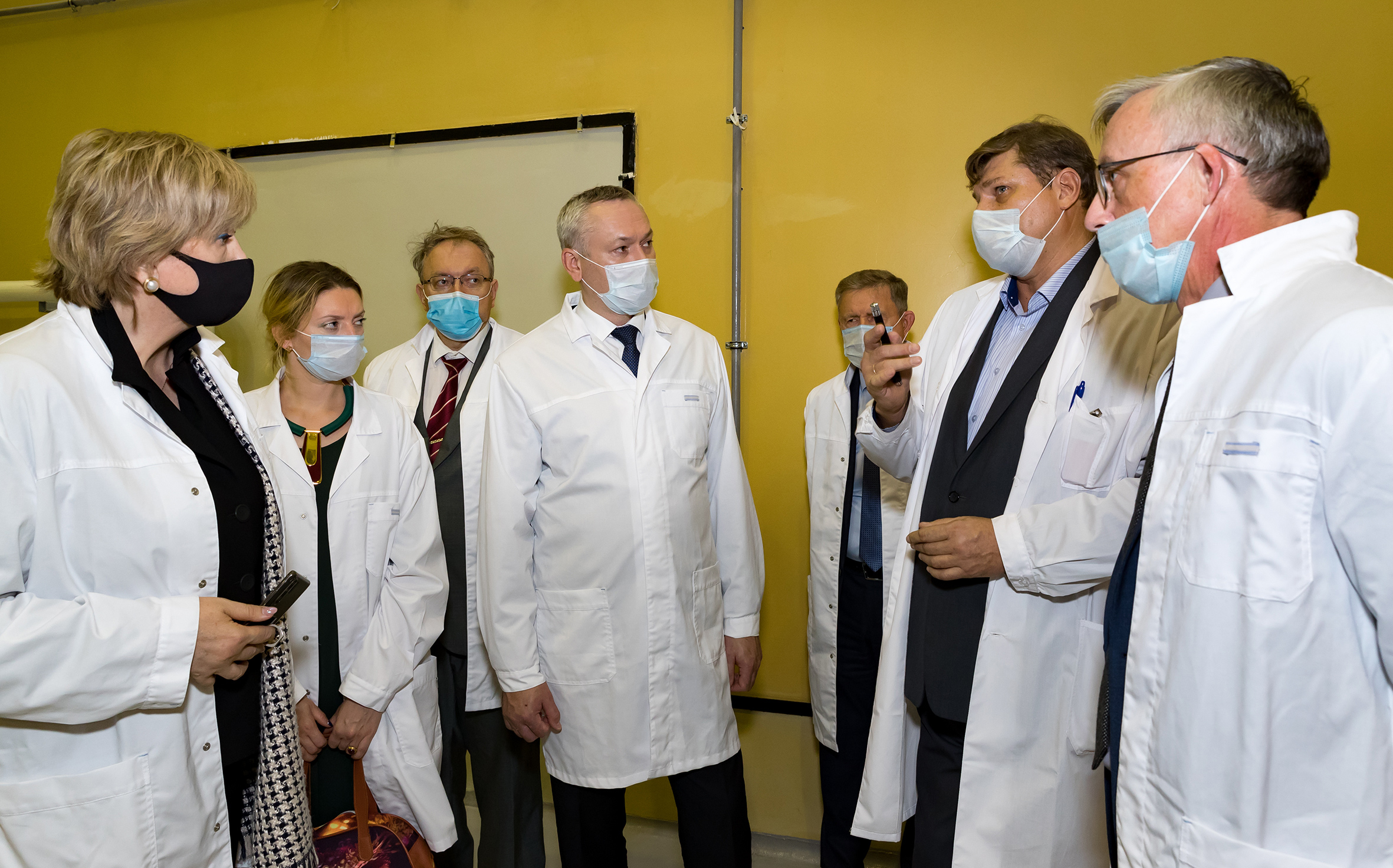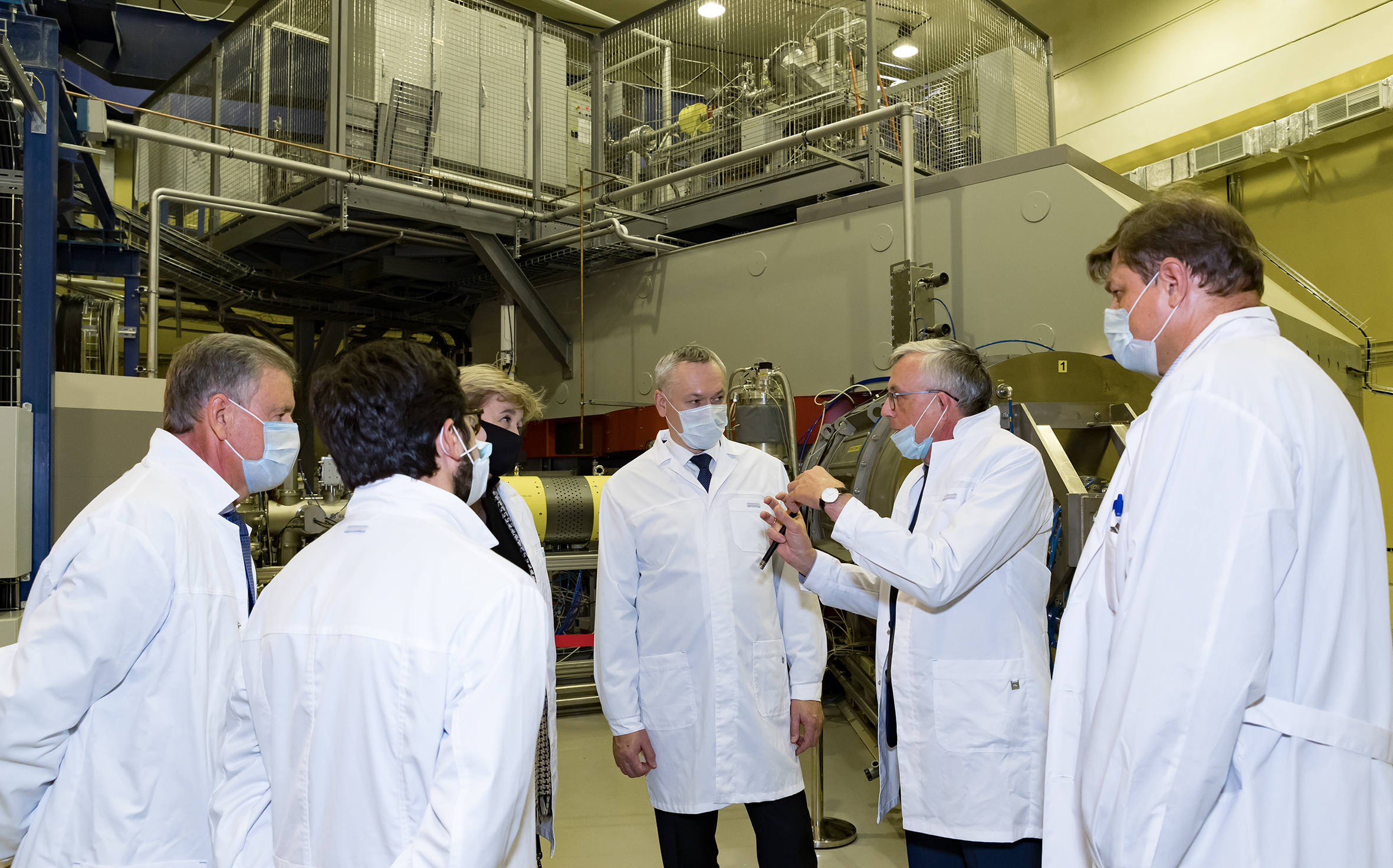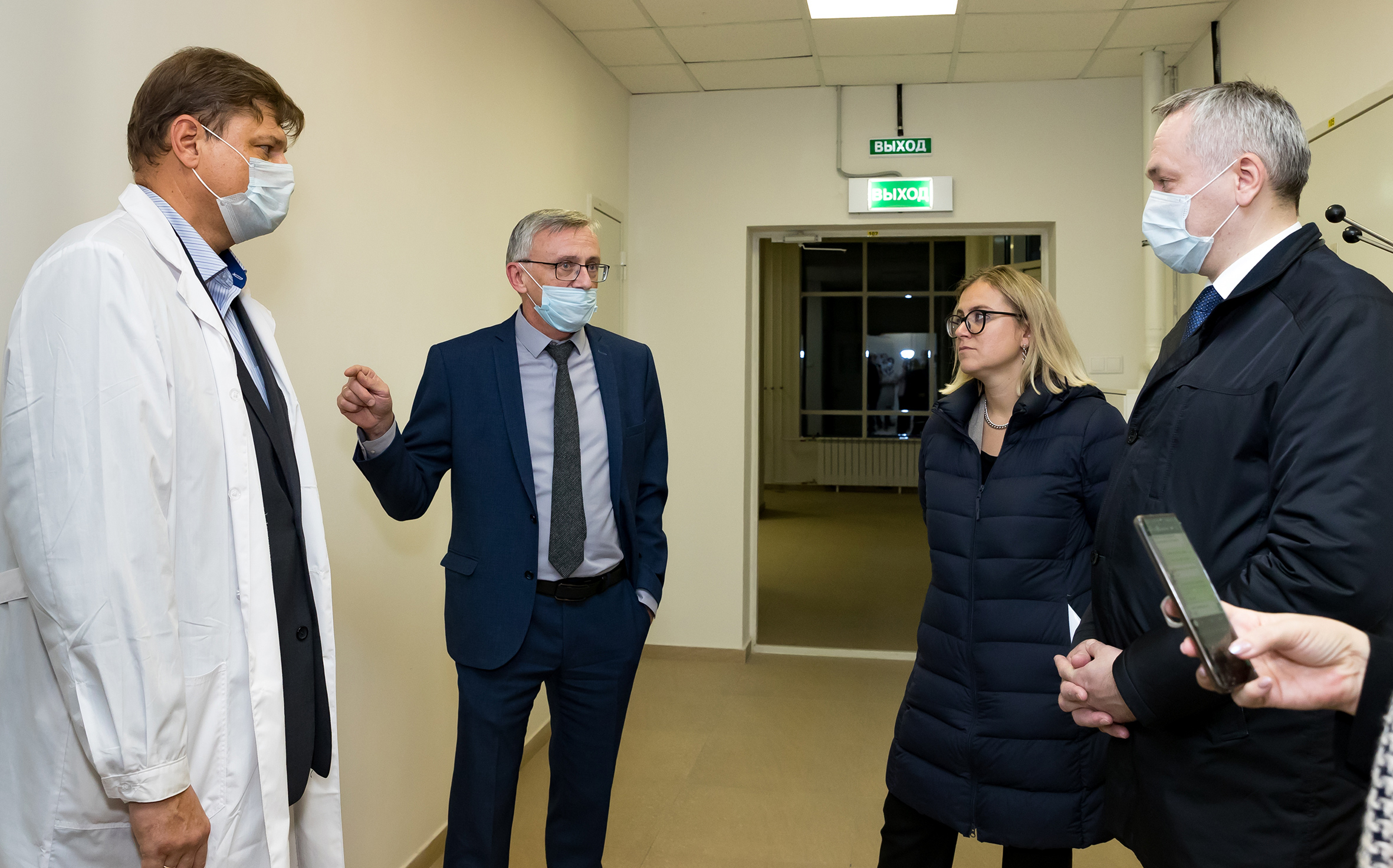JINR international experience used when implementing RF Strategy of Scientific and Technological Development
News, 23 October 2020
The Federation Council Committee on Science, Education and Culture discussed the development of international scientific and technical cooperation at a guest meeting in Dubna held jointly with the Joint Institute for Nuclear Research.
The meeting on the topic “Main fields of and prospects for the development of international scientific and technical cooperation in the framework of the implementation of the Strategy of the Scientific and Technological Development of the Russian Federation” was chaired by Speaker of the Federation Council Committee Lilia Gumerova.
Opening the event, the Senator highlighted the relevance of the meeting in the light of the tasks set by the Government of the Russian Federation one of which is to ensure international leadership in the fields of science and technology. “According to Decrees of the President of the Russian Federation, the task is to ensure the Russian Federation to be one of the top-five countries conducting scientific research and developments in the fields determined by the priorities of the scientific and technological development, as well as one of the top-ten countries in terms of the research and development volume,” Lilia Gumerova said. The Senator also highlighted that the Strategy of Scientific and Technological Development of the Russian Federation, along with the annual address of the President of Russia and the Strategy of Social and Economic Development, is referred to as a document of strategic planning of the Russian Federation. One of the main tasks of the Strategy is the development of international scientific and technical cooperation and international integration in the fields of science and technology.
Lilia Gumerova noted that the place for the guest meeting was chosen not by chance, as far as during its existence, JINR had fully confirmed the fact that science is international, and that major priorities of Russian fundamental science coincide with the world ones. Lilia Gumerova said that the visit to Dubna had a considerable practical benefit for the Committee and allowed its members to immerse themselves into the amazing atmosphere of the Institute that knows no boundaries, countries, religions and that s united by the idea of serving to science for the sake of peace and progress. “This is a world-class centre in terms of enormous capacity and potential,” the Senator added.
JINR Director Academician Victor Matveev noted in his welcoming speech that it was a great honour for the Institute to welcome such important guests. He also highlighted that JINR is one of the efficient instruments of international scientific and technical cooperation in the interests of Russia and the other JINR Member States. It managed to strengthen its international basis even in the most difficult times. “Nowadays, JINR greatly contributes to scientific diplomacy, develops and creates the research infrastructure.” Talking about the development of the JINR international component, Victor Matveev informed the audience that negotiations with France, India, China and a number of other countries on their Associate Membership at JINR are underway. Academician Victor Matveev also highlighted the significant role the Agreement with the RF Government plays for the effective development of the Institute. “Taking this opportunity, I find it necessary to express deep gratitude to the Government of the Russian Federation and to President of Russia Vladimir Vladimirovich Putin personally for the great support of our international organization and attention to its work,” the JINR Director said.
Speaking to participants of the meeting, JINR First Vice-Director Academician Grigory Trubnikov highlighted that the Russian Federation as the country of the Institute’s location plays a key role for JINR. He noted that several successful initiatives are being implemented in the framework of the national project “Nauka” (lit. “Science”), including the creation of world-level scientific and educational centres, technology parks, the conduct of breakthrough fundamental research. Grigory Trubnikov noted that the Institute is ready to share successful practices, to help establish cooperation in the RF subjects with foreign partners and countries, as well as with subjects of foreign countries. “It is important for us that our colleagues present today – governors, vice-governors, heads of science cities, heads of universities – consider our Institute as a consulting, coordinating platform that we provide for everyone for the development of international scientific and technical cooperation in your regions, cities, universities and research institutes. Our main goal is to share and promote the best international scientific and technical practices,” he highlighted.
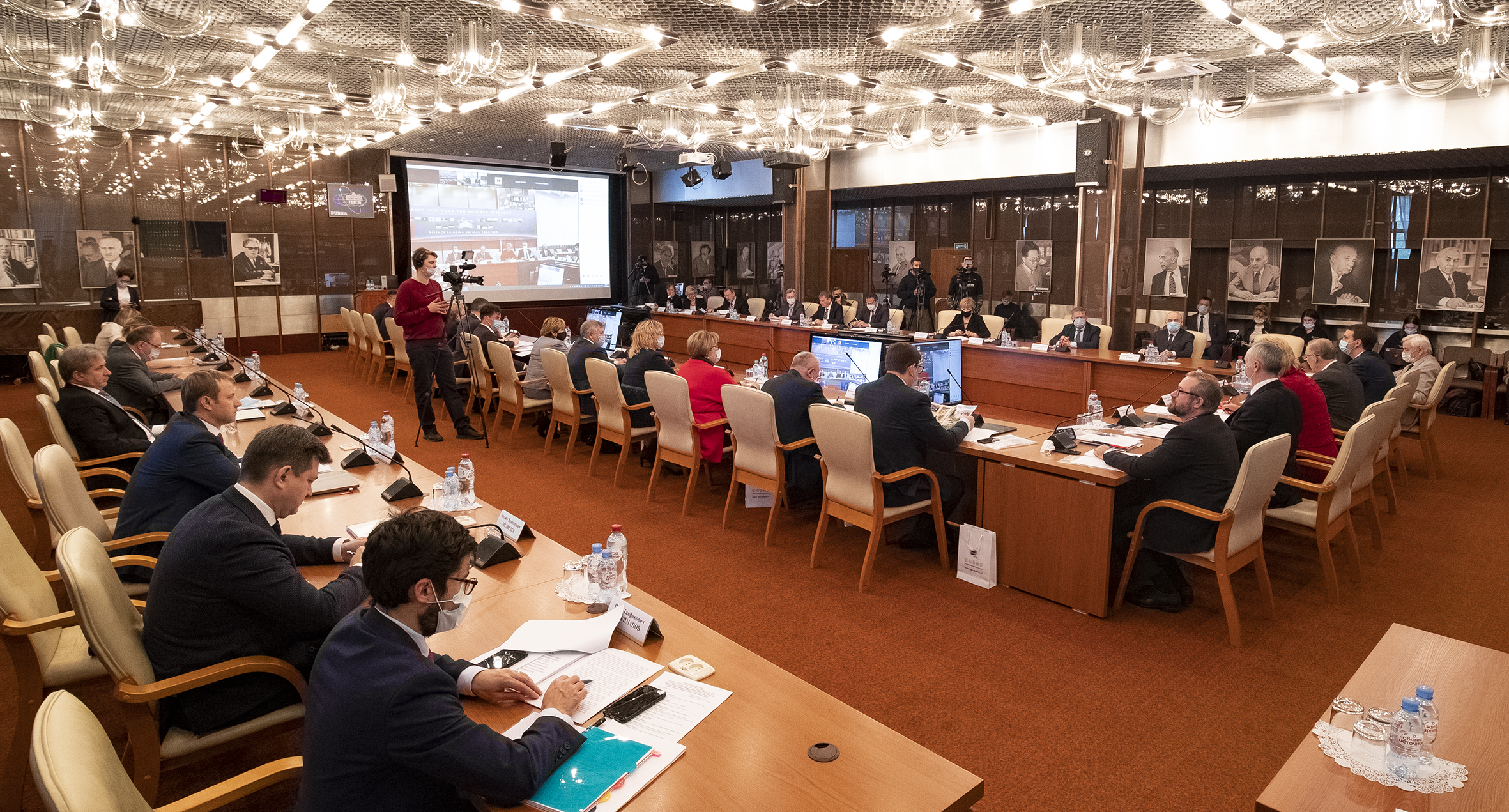 At the meeting of the Federation Council Committee on Science, Education and Culture on 23 October 2020. Photos by Elena Puzynina, JINR
At the meeting of the Federation Council Committee on Science, Education and Culture on 23 October 2020. Photos by Elena Puzynina, JINR
The meeting was continued with the report by Head of the JINR International Cooperation Department Dmitry Kamanin in which he spoke in detail about principles of and prospects for the development of JINR international cooperation, as well as presented to the audience examples of international practices of JINR that had proved their effectiveness. “Partner network of the Institute includes more than 900 institutes, organziations, universities of more than 60 countries. Most importantly, they are not concentrated in one place, they represent the entire world. We should see the development of our cooperation on a global level,” he said. Approaches were presented on how cooperation with a university may extend and cover the whole RF region, or, on a larger scale, cooperation with a country may promote the development of cooperation with neighbouring countries of the region. It may be exemplified by the creation of the JINR Information Centre in the South of Russia that attracts attention to the Institute of universities of the Caucasus region, or the organization of a visit of ambassadors of 11 Latin American countries. Moreover, the training and internship programme at JINR was presented. It demonstrates that they cover the entire scientific community: from school students to teachers, from students and young scientists to senior managers. The Speaker of the Federation Council Committee proposed to supplement the draft of the decisions on the milestones of the meeting with approaches presented in the report. That proved the relevance of the presented information.
Deputy Minister of Science and Higher Education of the Russian Federation Sergey Lyulin in his speech highlighted the importance of the development of international cooperation for the implementation of goals of the National Strategy of Scientific and Technical Development.
“It is necessary not only to modernize and develop the existing infrastructure but also to create brand-new objects for it. They should help scientists work at the best possible level and to ensure that they get breakthrough results corresponding and even defining the world level,” the Deputy Minister said. “Our country has all the necessary competencies to create mega-science facilities. First of all, we should remember that Russia has taken an active part in designing, construction and now in the operation of the largest facility of this class in Europe. Now, it is the turn of the Russian Federation to apply these competencies and technologies for the construction of mega-science facilities.”
“The Ministry of Science and Higher Education of the Russian Federation has appealed to the Russian Government with the proposal to increase since 2021 the volume of funds allocated for the implementation of major measures aimed to develop the territories with high scientific and technological potential,” the Deputy Minister added. Comprehensive implementation of proposals with state support of the development of science cities will help the development of technological entrepreneurship and staffing of the scientific and technological leadership.
Governor of the Novosibirsk region Andrei Travnikov spoke about work done jointly with the Ministry of Science and Higher Education of the Russian Federation on the update of national projects. He also informed the audience that the programme of creation and support of world-level scientific and educational centres continues in the frames of the national project “Nauka i Universitety” (lit. “Science and Universities”). Head of the RAS International Cooperation Department Sergey Malenko presented a strategy of RAS international cooperation in the fields of scientific and technical activities developed by the Academy. Director General of the Special Economic Zone “Dubna” Anton Afanasiev told the audience about the effective development experience of the SEZ that had won several nominations of the international rating of special economic zones. He presented a forecast according to which until 2030, the number of residents would increase from 167 to 216, the number of developed companies would be four times higher, and there would be 10,000 workplaces instead of 4,600. The forecast evoked the vivid interest of participants of the meeting. The speech by Deputy Minister of Economic Development of the Russian Federation Oksana Tarasenko was about the implementation of the development programme of national Innovative scientific and technological centres. Chairman of the Council of Rectors of Universities of the South of Russia, President of the Southern Federal University Marina Borovskaya noted the importance of increasing the share of foreign master and postgraduate degree students studying in the Russian Federation.
Participants discussed the necessity to develop science cities as territories with advanced scientific and technological development and significant innovation potential. Acting Head of the Dubna city district Sergey Kulikov, Head of the science city Koltsovo Nikolay Krasnikov, Head of the Pushchino city district Alexey Vorobyov made their reports. The heads of the science cities made a number of proposals that were included in the draft of the Committee’s decisions, in particular, on improving the financing policy and the legislative status of science cities, mechanisms for subsidized mortgages for young specialists, creation of the comfortable urban environment.
Issues of providing Russian scientists with so-called scientific visas, protection of interests of intellectual property and support of international collaborations of RF mega-science projects were reported on by Deputy Director of the Centre of System Analysis and Advanced Research in Education and Science Vladimir Kiselev.
Rector of the North-Ossetian University Alan Ogoev told the audience about the scientific and educational projects implemented jointly with JINR, as well as presented successful experience in and prospects for the development of JINR Information Centre in the South of Russia at the federal level. “During the time of our joint work, the competition and the training level of enrollees for natural sciences courses have increased, including for physics and mathematics. Clear trajectories of scientific career development of students are forming, and this encourages them to better master new knowledge and to continue their study in master’s, postgraduate, and doctoral programmes,” Alan Ogoev highlighted.
Vice-Rector for Science of the Moscow Aviation Institute Yuri Ravikovich presented the milestones of the meeting of the Coordination Council of the Civic Chamber of the Russian Federation for national projects and national economy. The meeting was devoted to adjustments of the national projects “Obrazovanie”(“Education”) and “Nauka”.
Rector of the University “Dubna” Dmitry Fursaev made a proposal to change the RF legislation in order to provide scientists working in the Russian territory but who are not Russian citizens with an opportunity to teach at Russian universities.
Deputy Head of the Directorate of the President of the Russian Federation for scientific and educational policy Elena Nechaeva took part in the discussion and emphasized the special status of JINR: “I would like to note a unique JINR format: it has been existing for many years as an international intergovernmental organziation but it has not lost its topicality and demonstrates the ability to absorb and develop any modern formats and practices of not only international cooperation but also the scientific and technological development. I believe that all the formats and institutions, which have been reported on today by our dear colleagues, including scientific and educational centres, scientific and technical centres, science cities, special economic zones, etc., can use the JINR experience. I would like to pay attention to the fact that this organization is located in the territory of the Russian Federation, and despite this, it is an international organization. So, I call everyone to consider JINR as the Russian fortune. We should support and develop such a format of international cooperation located in Russia”. Deputy Chairman of the Federal Council Committee Victor Smirnov, members of the Federal Council Committee Elena Greshnykova, Natalia Kosikhina, Olga Khokhlova, Vladimir Beketov, and Sergei Mikhailov took part in the discussion. On behalf of the Joint Institute, Vice-Director Richard Lednický, Head of the Science Organization & International Cooperation Office, JINR Chief Scientific Secretary Alexander Sorin, Assistant to First Vice-Director Irek Suleimanov also pacticipated in the meeting.
The participants adopted a draft decision as a basis, which is aimed at the development of international scientific and technical cooperation in the framework of the implementation of the Strategy of Scientific and Technical Development of Russia, as well as at further growth and efficient use of the scientific and technical potential of Russian science cities.
In conclusion, Lilia Gumerova paid attention that on 26 March 2021, JINR would celebrate its 65th anniversary. The participants of the meeting discussed the possibility to hold thematic exhibitions in the Federal Council, UNESCO headquarters, the UN, Russian centres of science and culture located abroad.
In the frames of the guest meeting, a number of introducing excursions around the Institute’s laboratories was organized for the members of the Federal Council Committee and participants of the event. The guests were acquainted with the progress in the implementation of the NICA mega-science project in VBLHEP, the Superheavy Element Factory in FLNR, and the project of the Baikal-GVD deep underwater telescope in DLNP. The guests also visited the Special Economic Zone “Dubna” and the Satellite Communications Center (SCC) “Dubna”. Moreover, the members of the Federal Council Committee had a meeting with young scientists from the JINR Member States in the frames of the event.
Acquaintance of members of the Committee on Science, Education and Culture with JINR and its scientific laboratories, 22 October 2020
At the meeting of members of Committee on Science, Education and Culture with JINR young scientists, 22 October 2020
Members of the Committee and participants of the meeting having an excursion to the Satellite Communications Center “Dubna”, 23 October 2020
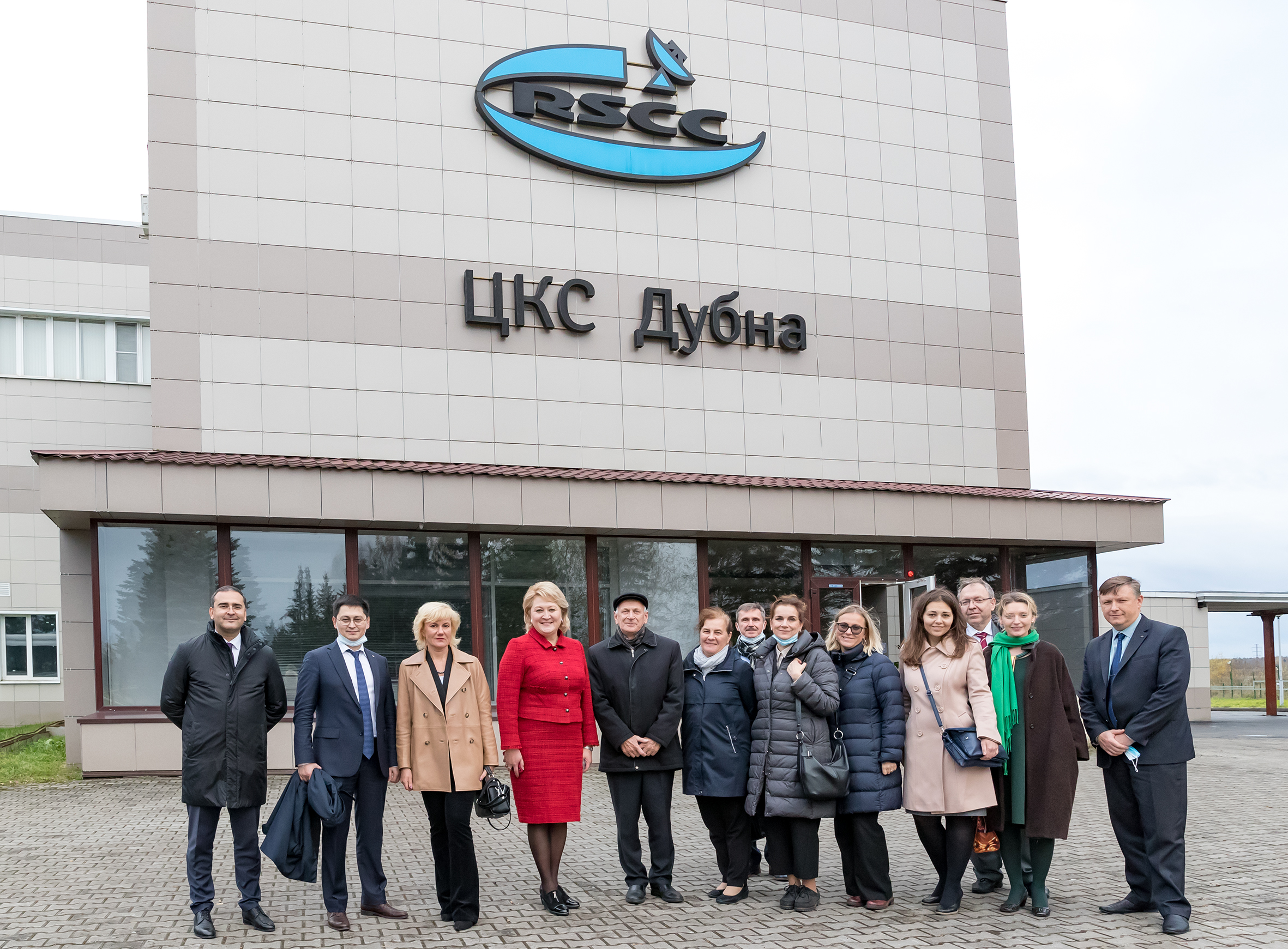 Photos by Elena Puzynina, JINR
Photos by Elena Puzynina, JINR
Excursion to the SEZ “Dubna”: “Pascal Medical” company that produces single-use injection syringes, 23 October 2020
Excursion to the SEZ “Dubna”: “Promtech-Dubna” company that produces staff for aviation industry, 23 October 2020
Excursion to the Flerov Laboratory of Nuclear Reaction, 23 October 2020
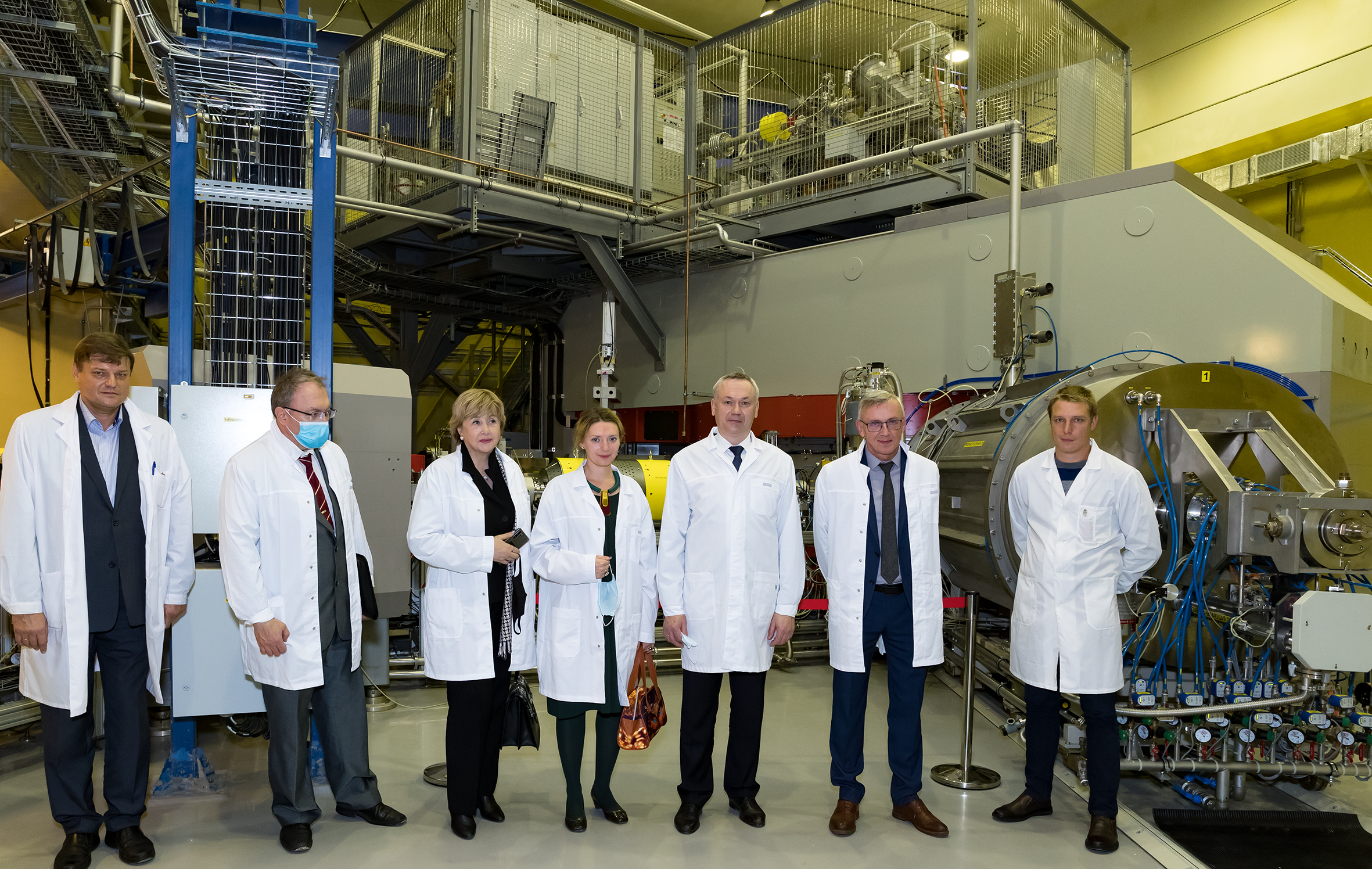 Photos by Elena Puzynina, JINR
Photos by Elena Puzynina, JINR


